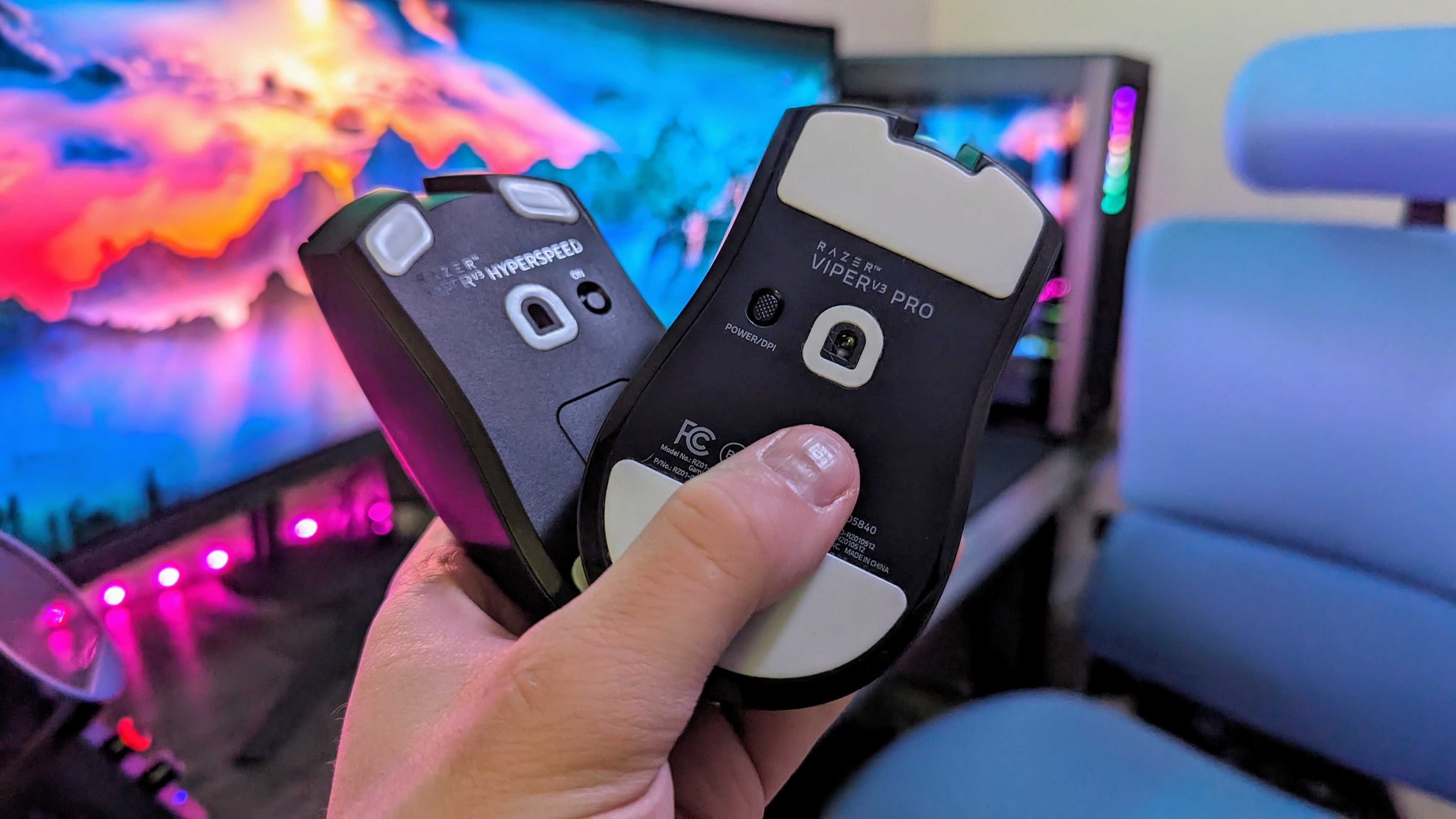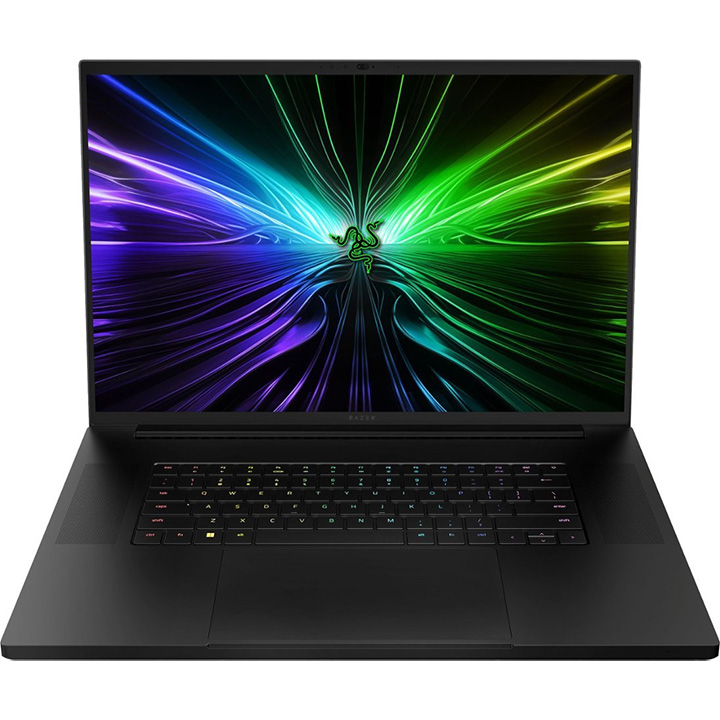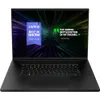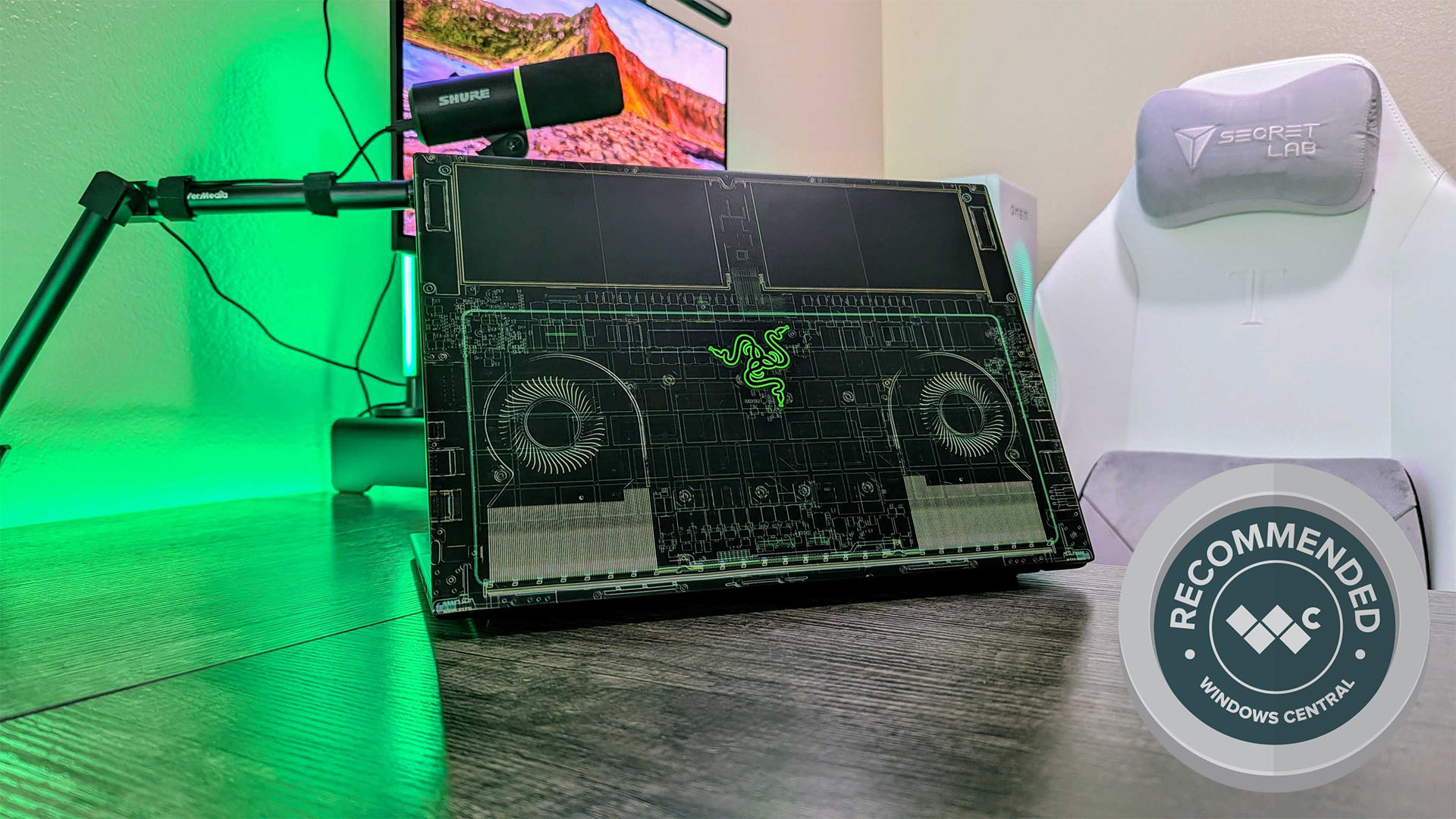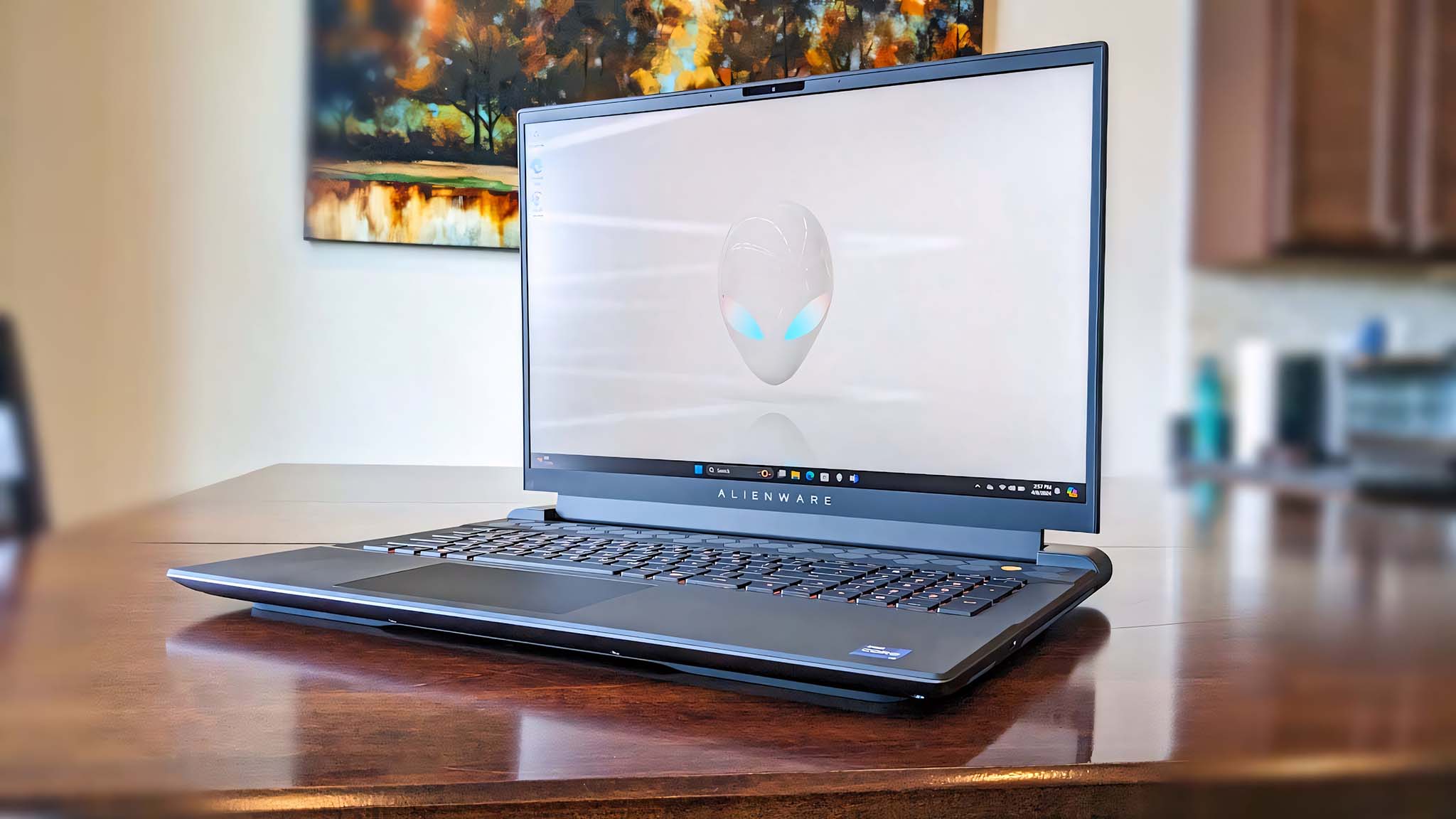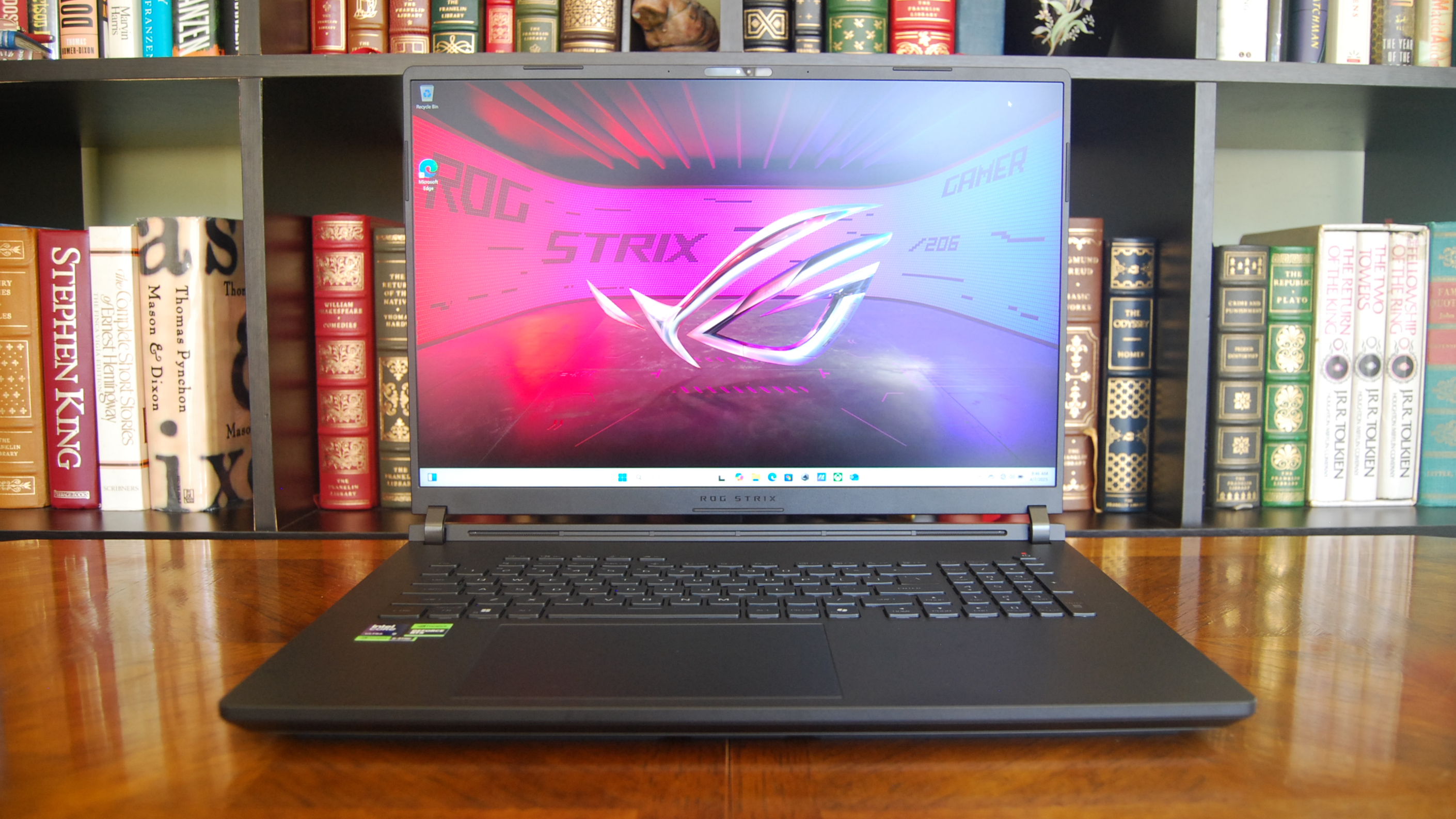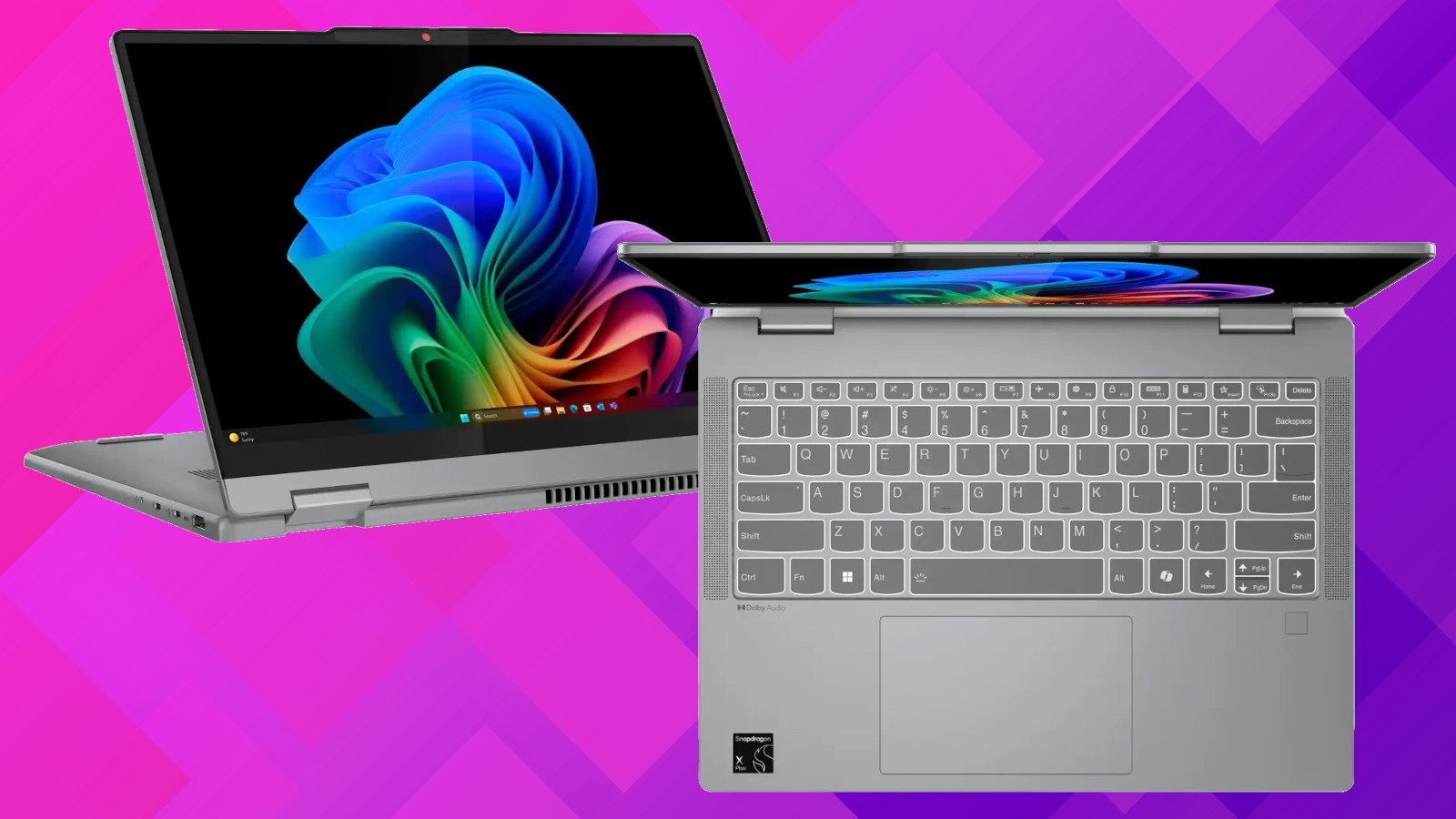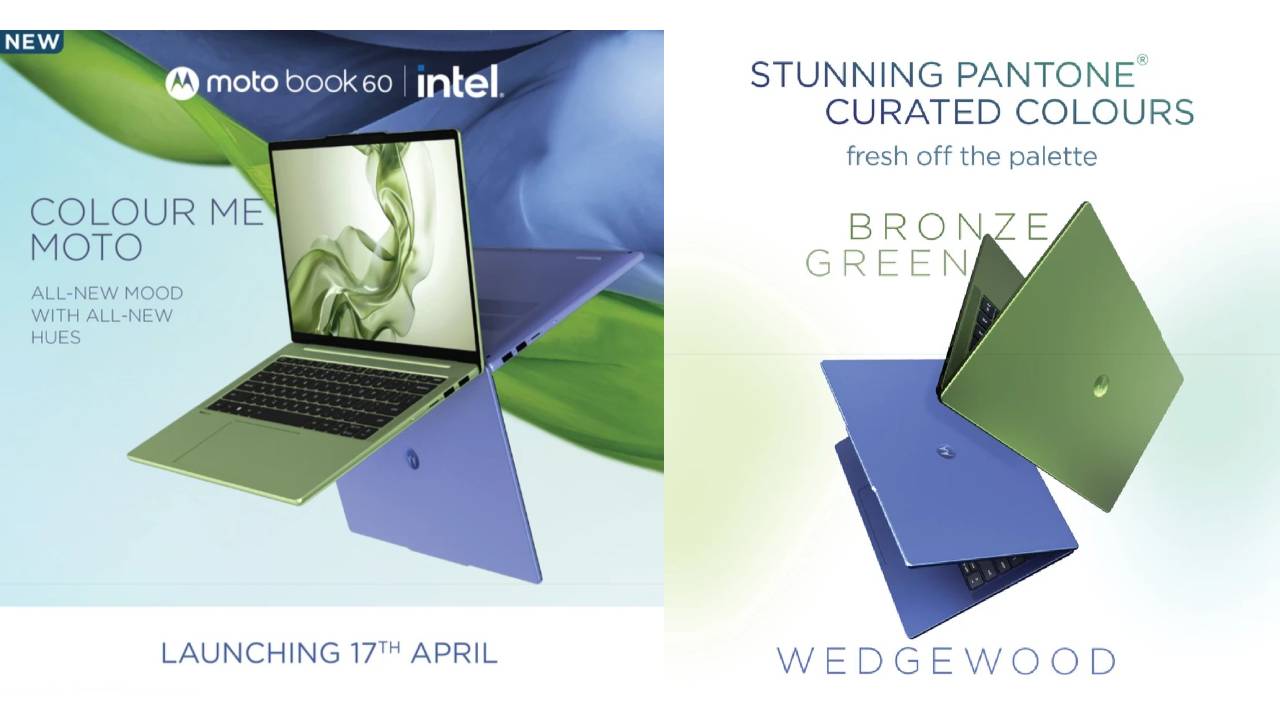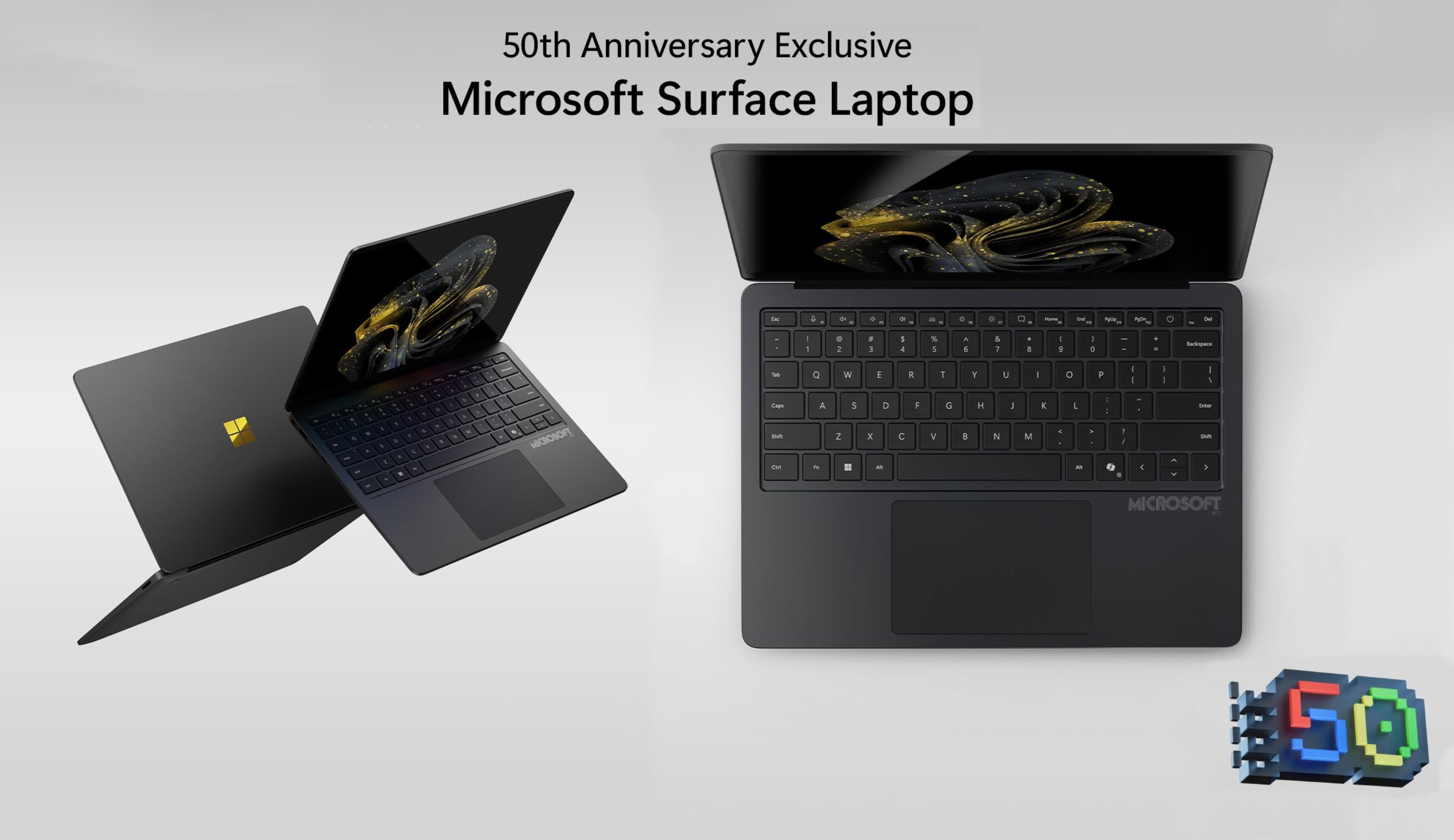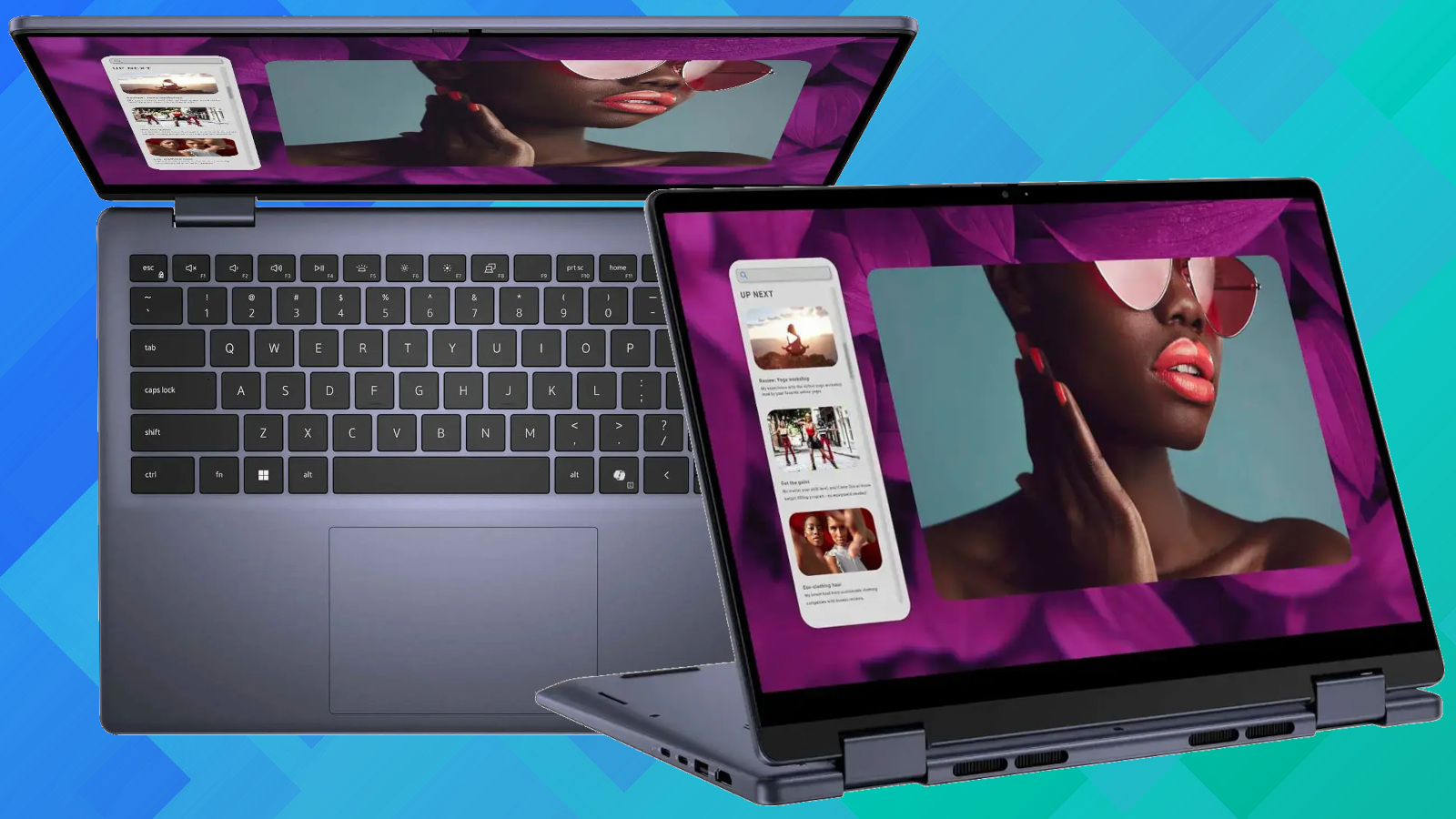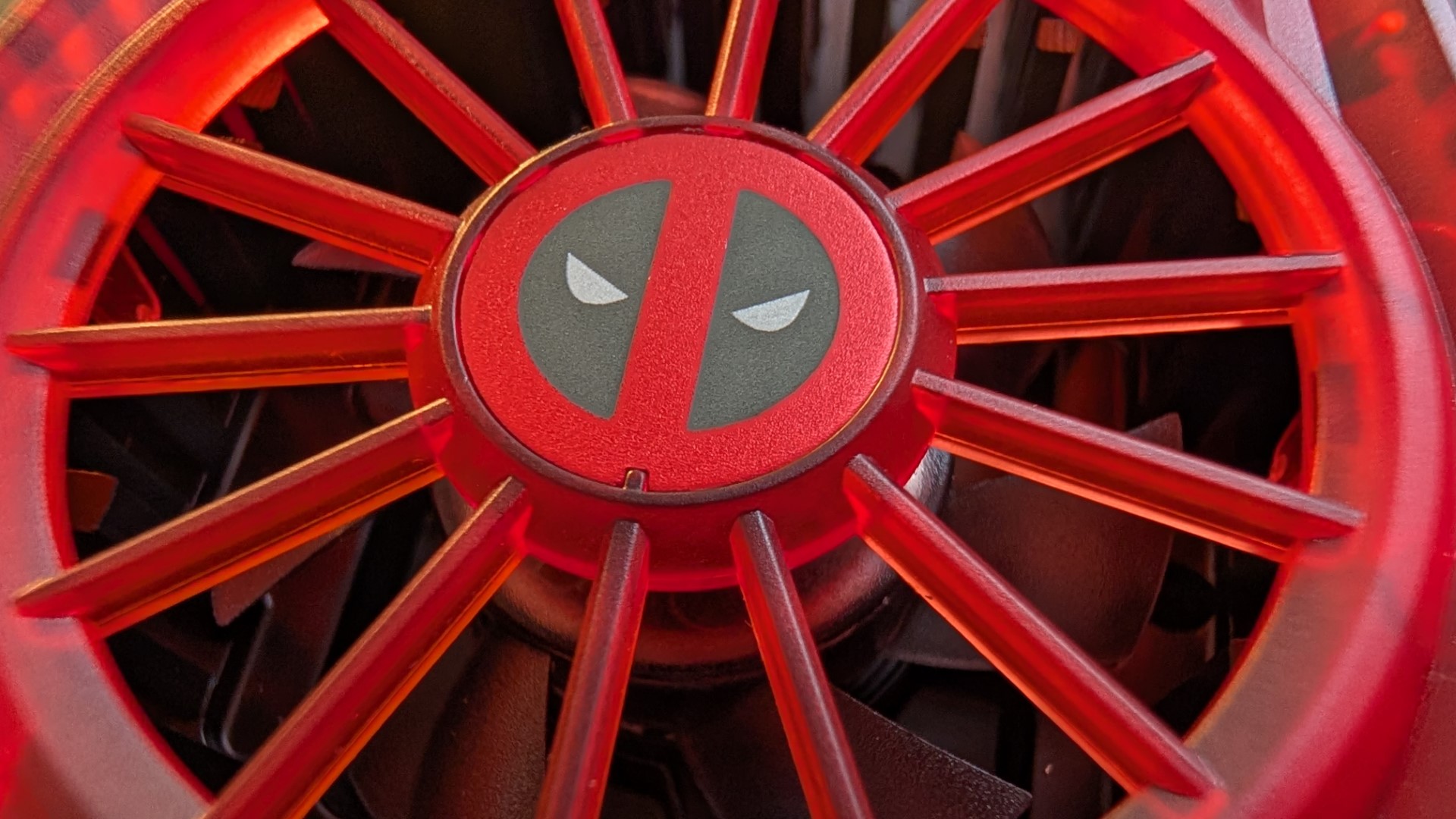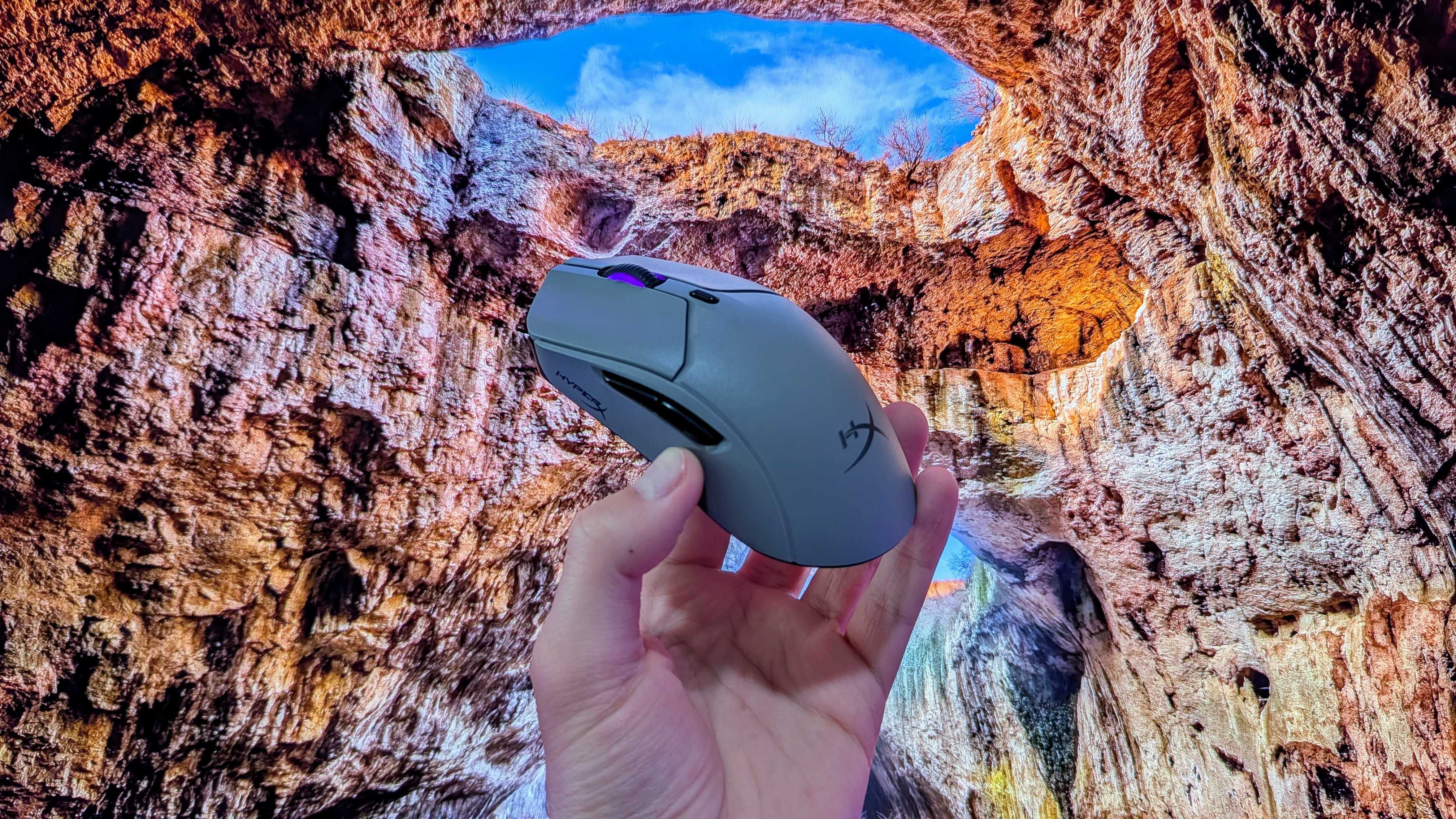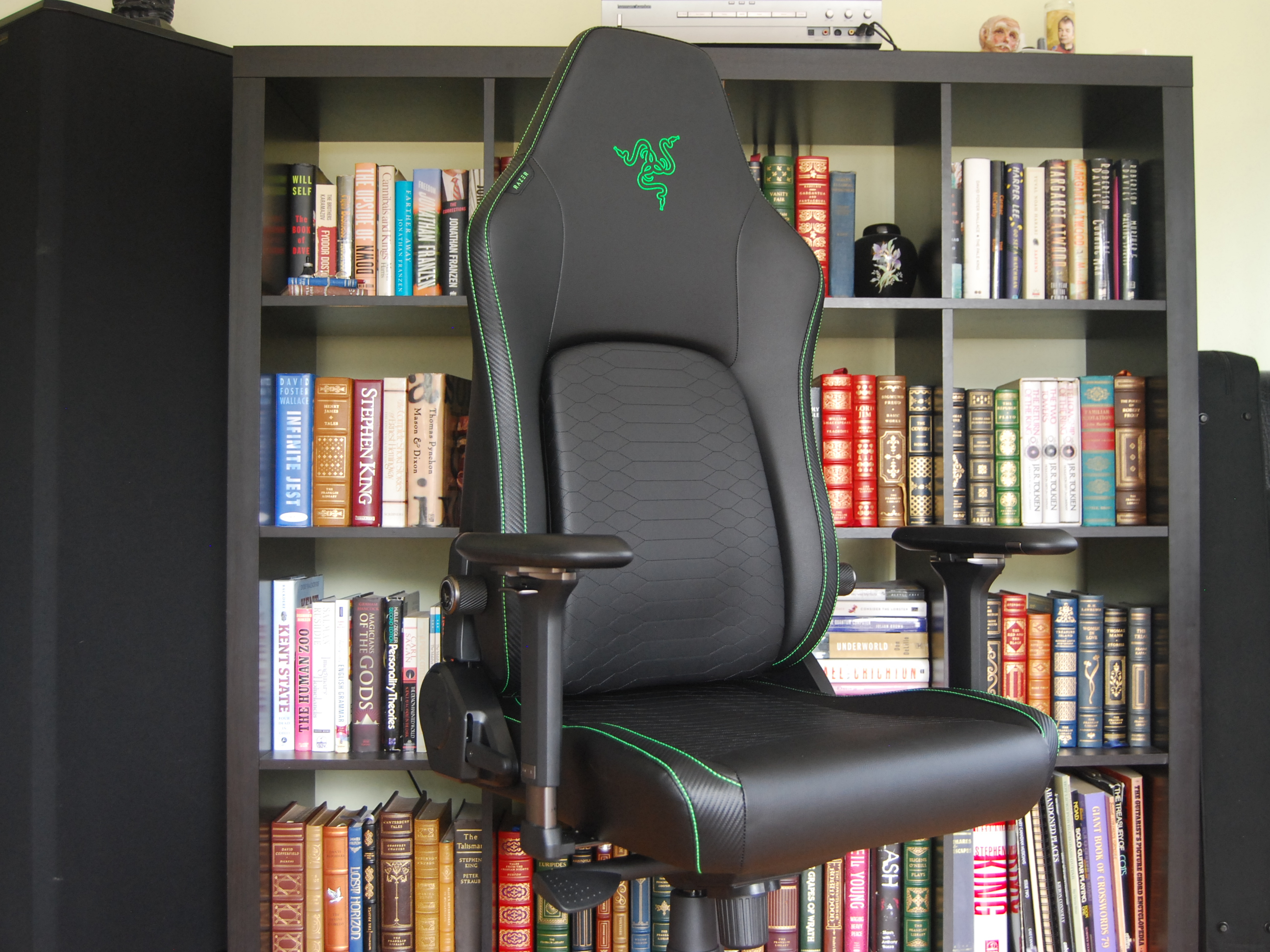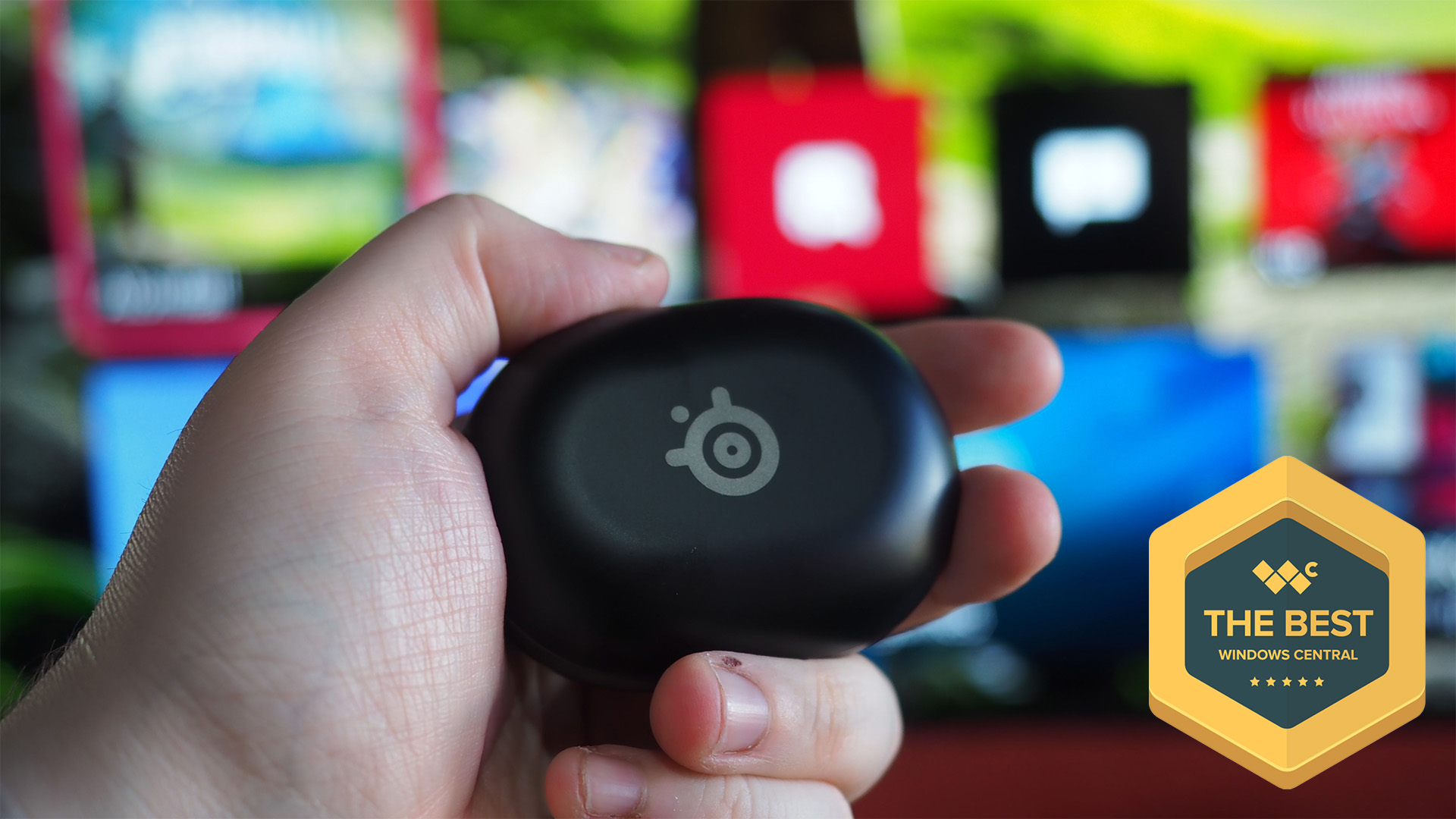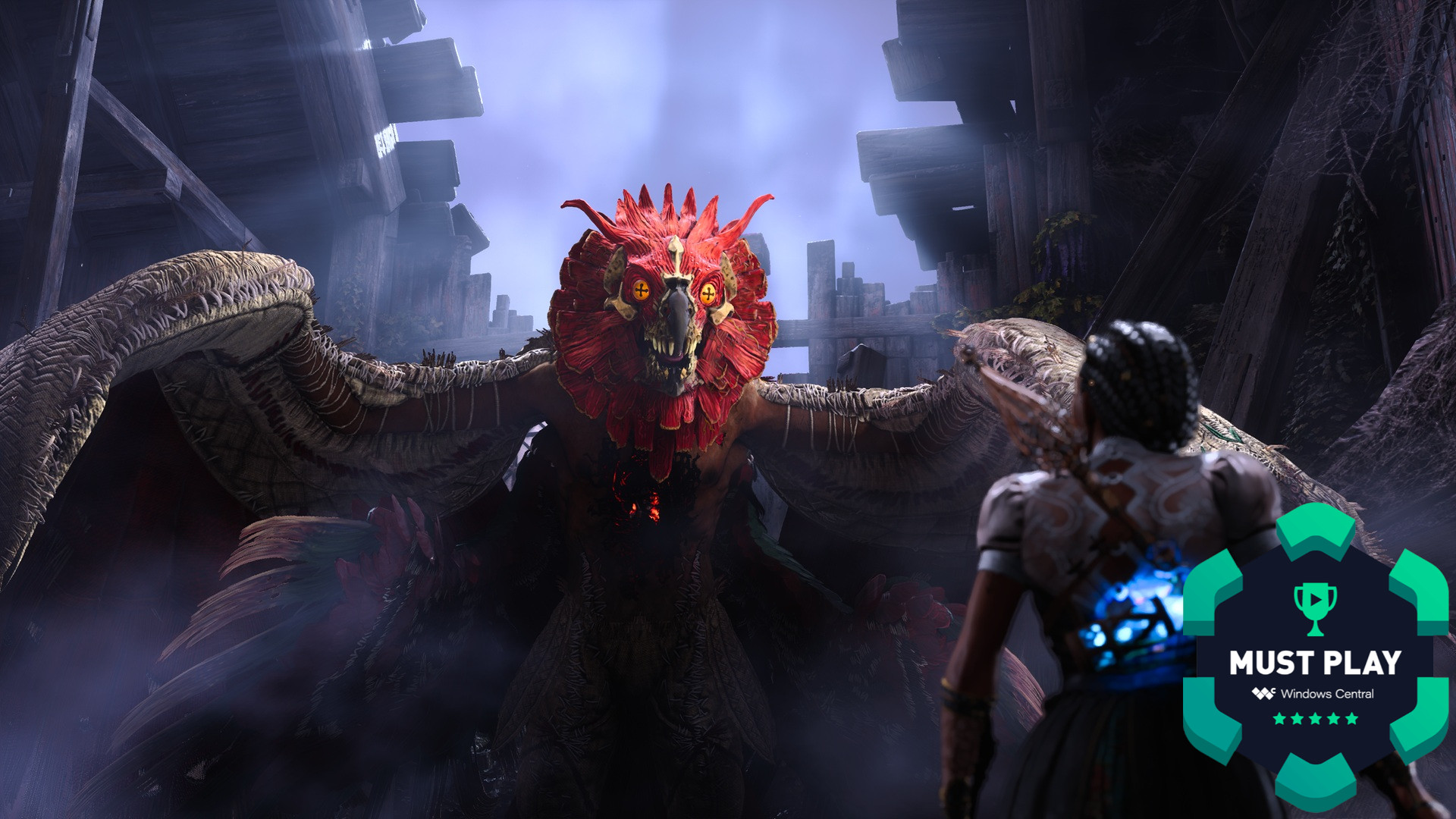Effortlessly runs almost any game at Ultra configs.
Subtle design refrains from overblown gamer aesthetics.
A choice between UHD+ 240 Hz LCD or QHD+ 300 Hz Mini-LED screen.
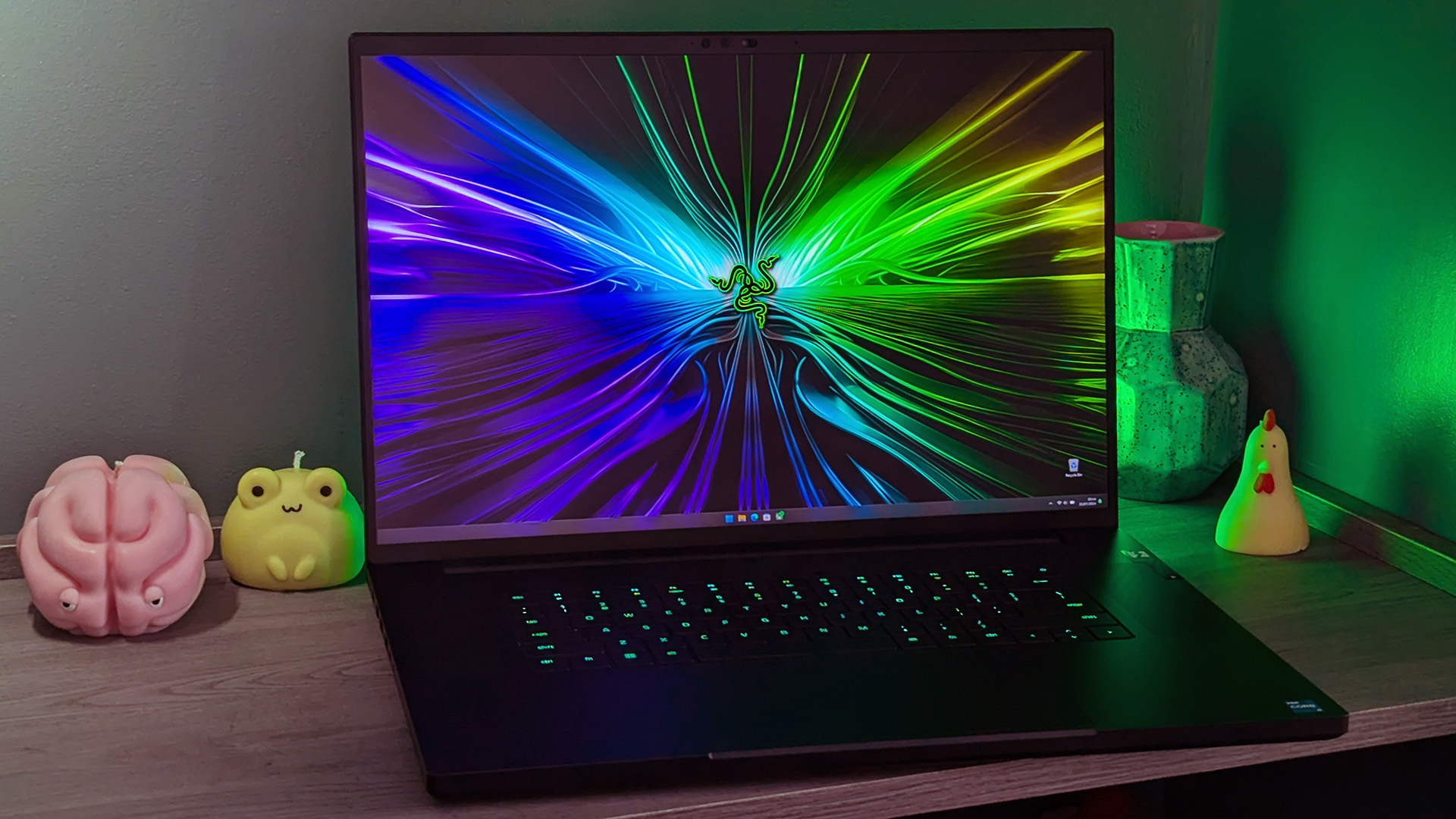
Still huge, still sleek. The Blade 18 chassis hasn’t changed for 2024, but the internals are beefier than ever.
All USB-A ports are 3.2 Gen 2, and USB-C upgrades to Thunderbolt 5.
Gigantic and heavy, portability is severely limited.
Gaming performance on battery pales in comparison to AC power.
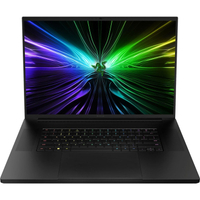
Passable keyboard mismatches the impressive touchpad.
Thunderous fans are the loudest I’ve ever heard from a laptop.
Price, specs, & availabilityDesign & build qualityKeyboard and touchpadDisplayBattery lifeGaming and performanceThe competitionShould you buy it?
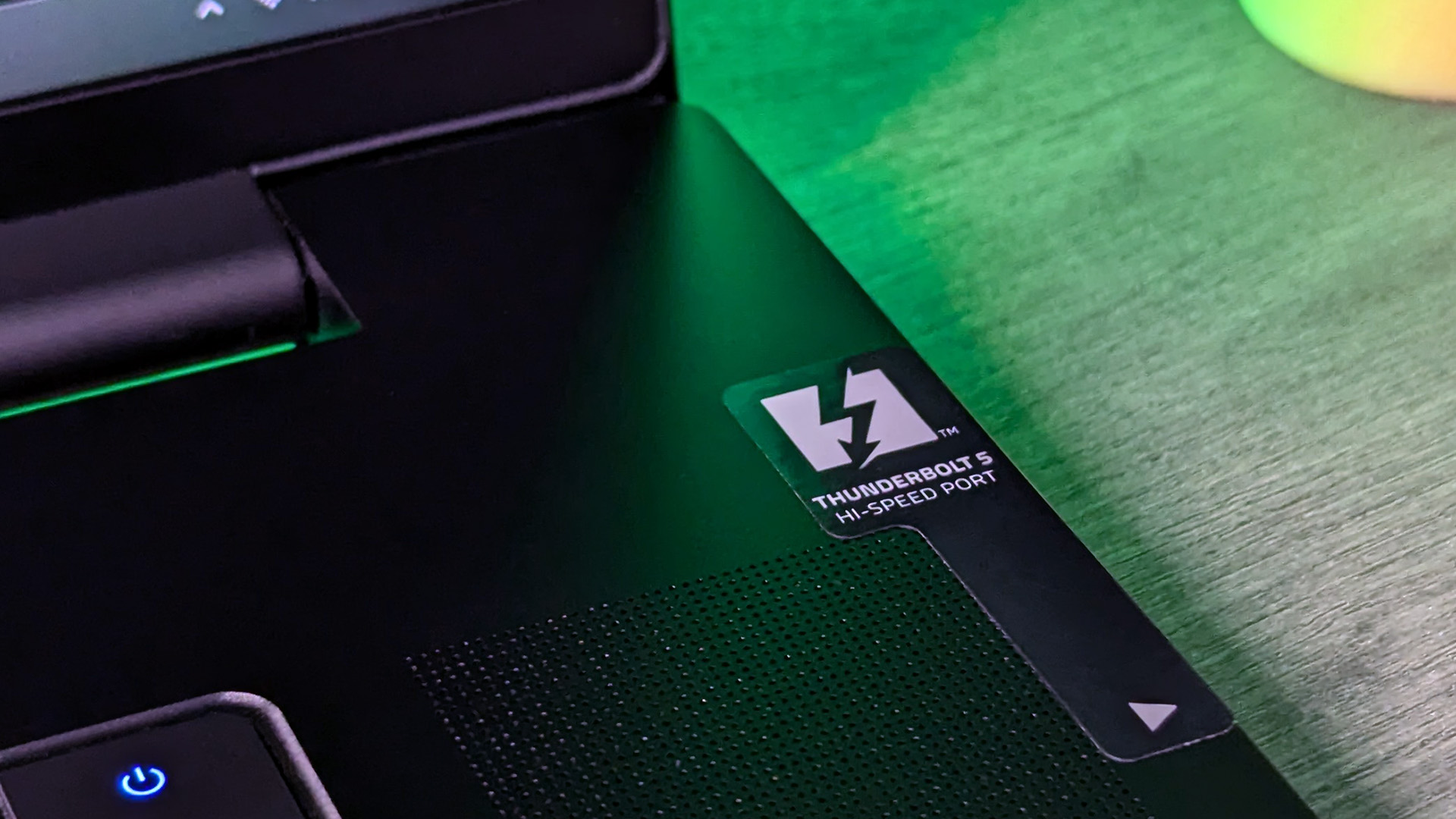
There’s no mistaking the Thunderbolt 5 port, at least until you remove this giant sticker.
Additionally, sections throughout this article have been updated to reflect new thoughts and information surrounding the latest variant.
This review was made possible thanks to a review unit provided by Razer.
The company did not see the contents of this review before publishing.
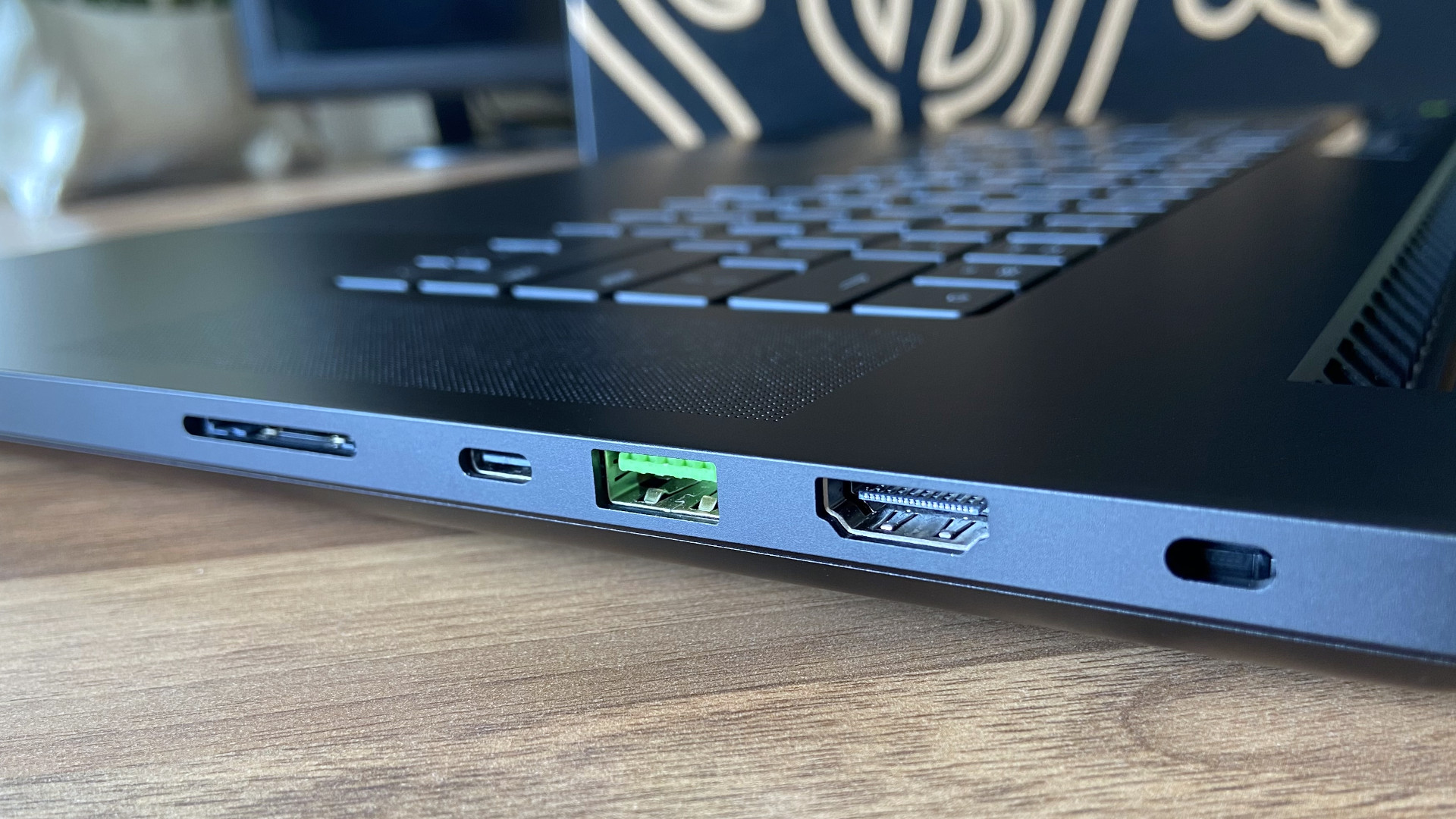
Ports look the same on the 2024 refresh, but the singular USB-C graduates to Thunderbolt 5.
32GB of DDR5 SODIMM RAM is plenty for now and can be upgraded later.
Stick with Thunderbolt for external displays if your monitors support it.
Along press is needed to power offthe Blade 18, but that behavior still suits a side-mounted button.
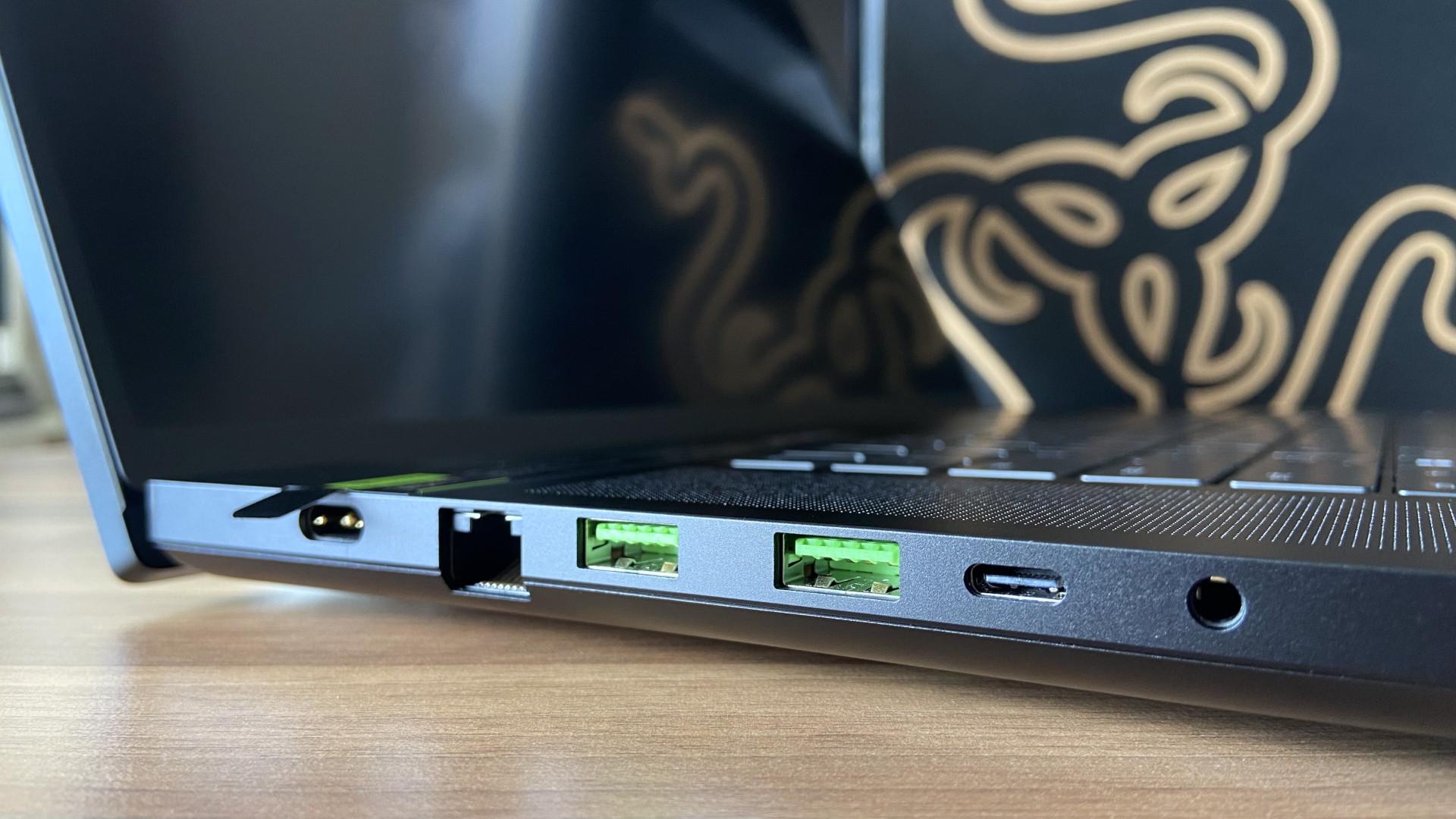
All three USB-A ports are 3.2 Gen 2 to save on guesswork when you need the fastest speeds.
It’s a personal preference, but one I stand by.
Anything below 5ms is fine for gaming, so I have no complaints.
It’s bright, fast, and color-accurate.
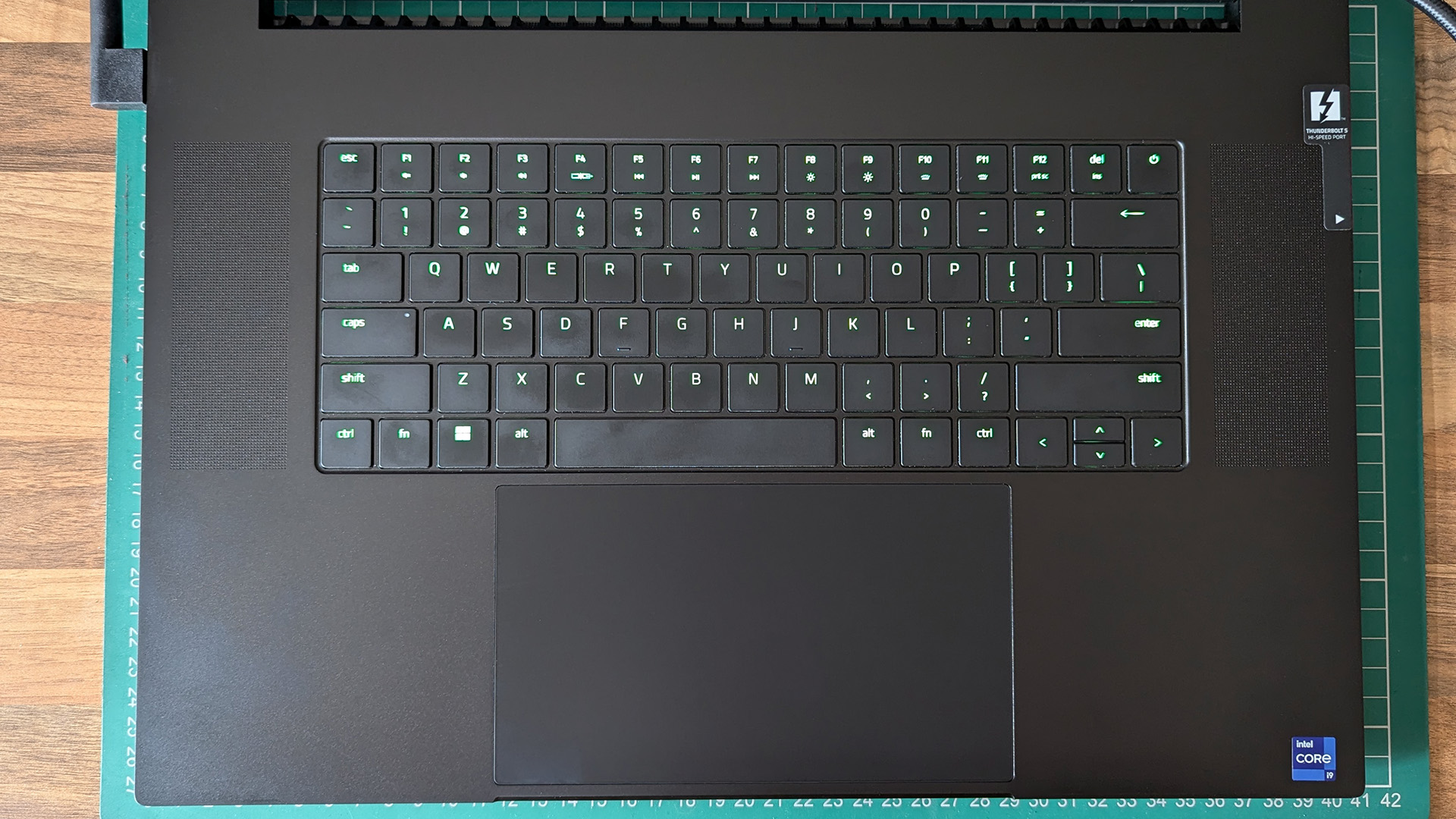
The power button has to go somewhere, but between delete and backspace is probably my least favorite place.
Blade 18: Battery life
Defending the battery life of a gaming laptop feels a little fruitless.
However, the battery isn’t user-replaceable, so this number will inevitably drop over time.
If you think of a PC game, the Razer Blade 18 can run it.
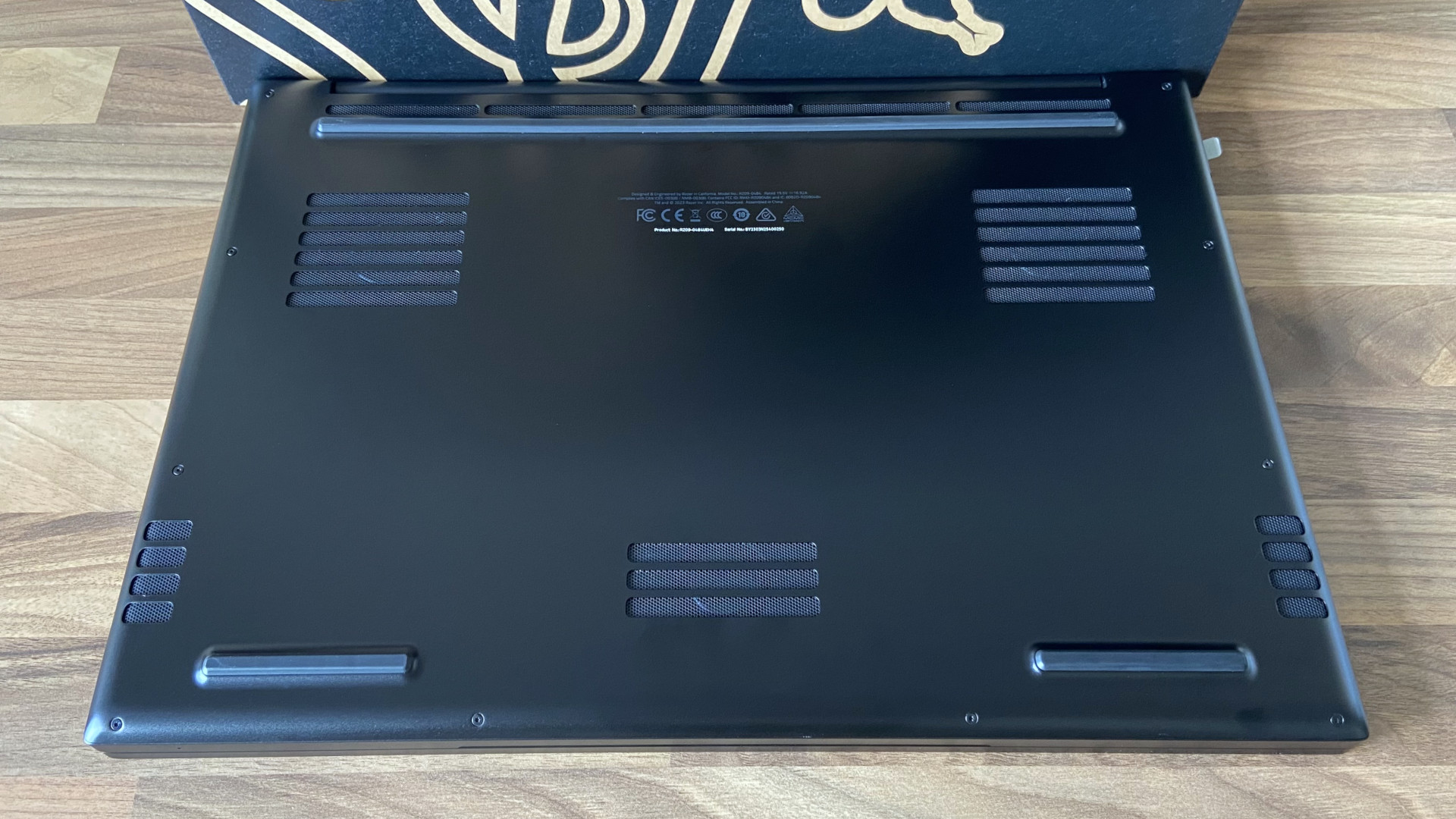
Sacrificing a fancier keyboard for extra cooling and improved speakers is a fair trade.
However, I’ll still put the 2024 refresh through our usual group of per-component benchmarks.
So, how about pushing the internals to their limit?
Blade 18: Scorecard
Blade 18: Should you buy it?
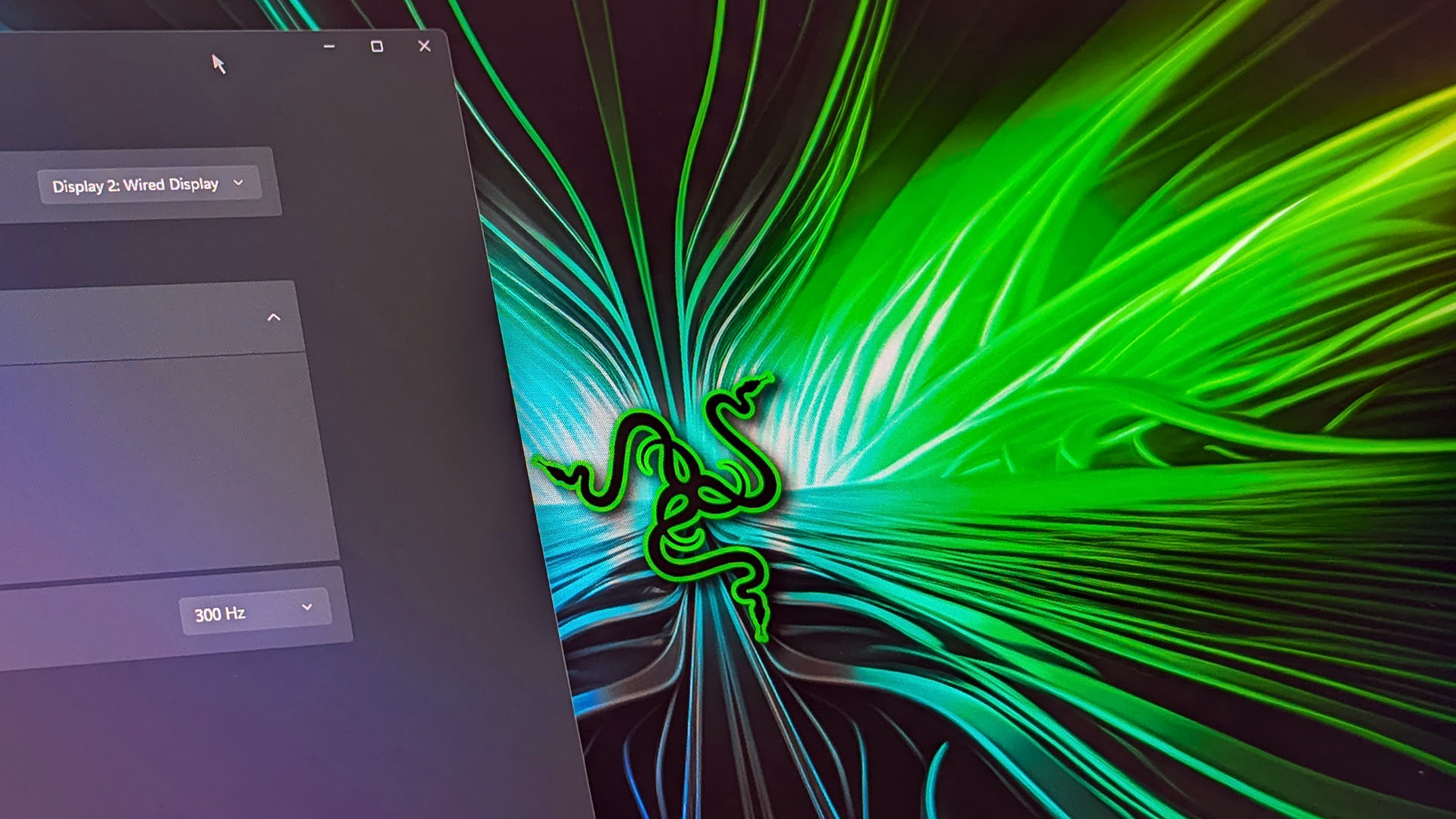
A 300Hz refresh rate is beyond the 144Hz I settle for and the 240Hz I’d usually dabble in, but it works great here.
You should buy this if …
You want the highest-performing gaming hardware in a portable form factor.
Most of your gaming is done at home with available AC power.
You prefer larger screens with smooth refresh rates.
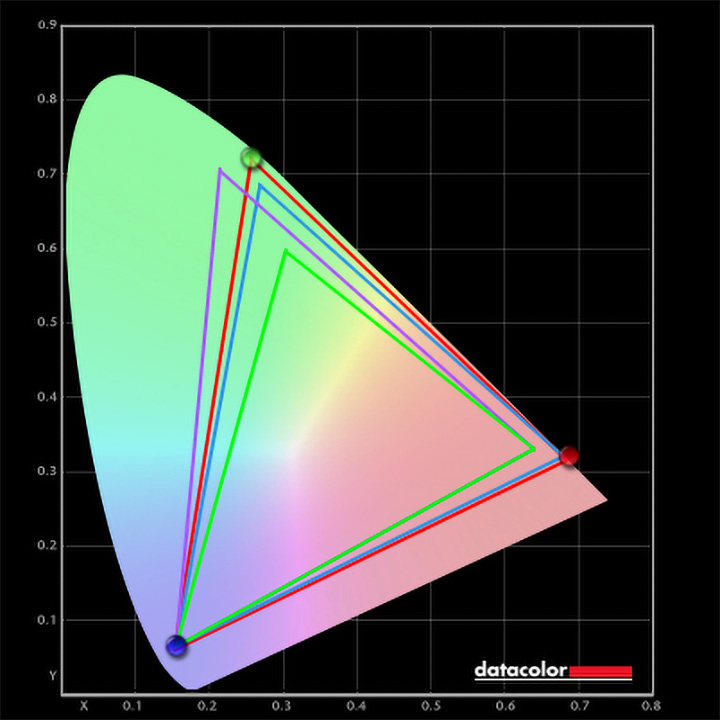
The Razer Blade 18 (2024) screen scored 100% of sRGB, 92% of AdobeRGB, and 100% of P3 with a Datacolor Spyder X Pro colorimeter.(Image credit: Ben Wilson | Windows Central)
You shouldn’t buy this if …
You want a lightweight machine that’s easy to transport.
you should probably maintain a quiet environment when gaming.
You primarily play games while traveling, relying on battery power.
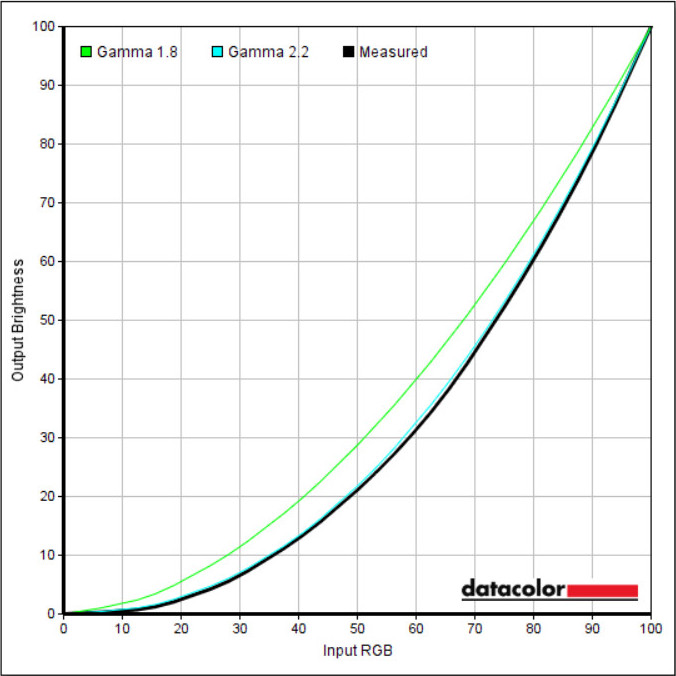
Datacolor SpyderX Pro tone response test results for Razer Blade 18 (2024) (gamma 2.2)(Image credit: Ben Wilson | Windows Central)
Now, obviously, packing the highest-end components into an 18-inch chassis doesn’t come cheap.
You likely don’t need to sweat the details if your budget is already above the $2,000 mark.
Razer Blade 18: desktop power in laptop form.
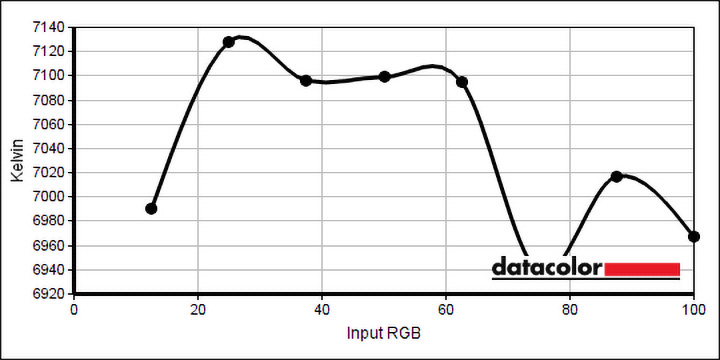
Datacolor SpyderX Pro gray ramp test results for Razer Blade 18 (2024)(Image credit: Ben Wilson | Windows Central)
NVIDIA RTX 4090, Intel i9 HX, 300Hz screen.
The ultimate gaming laptop.
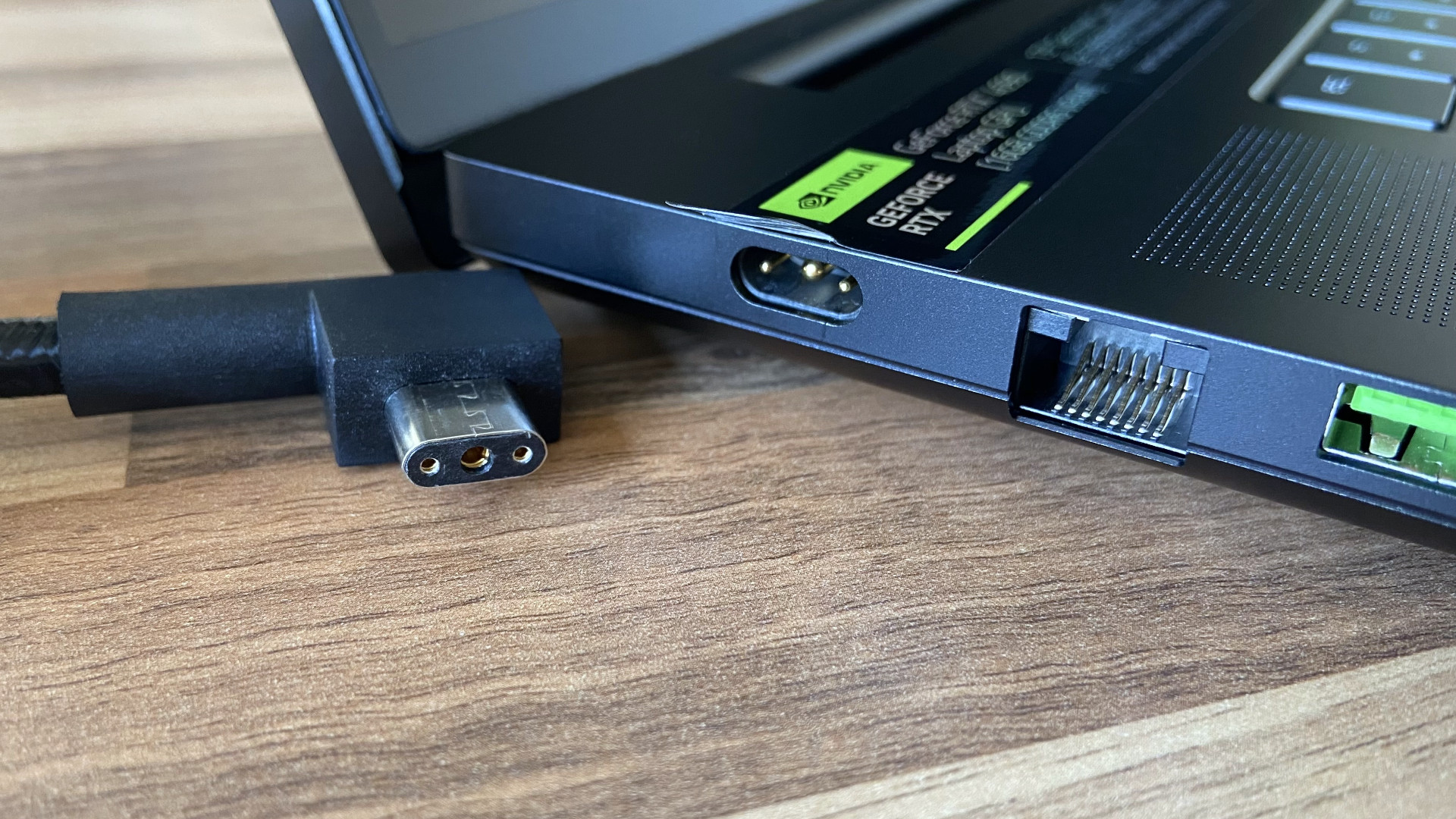
Get used to seeing this AC adapter because you’ll rely on it for most games.
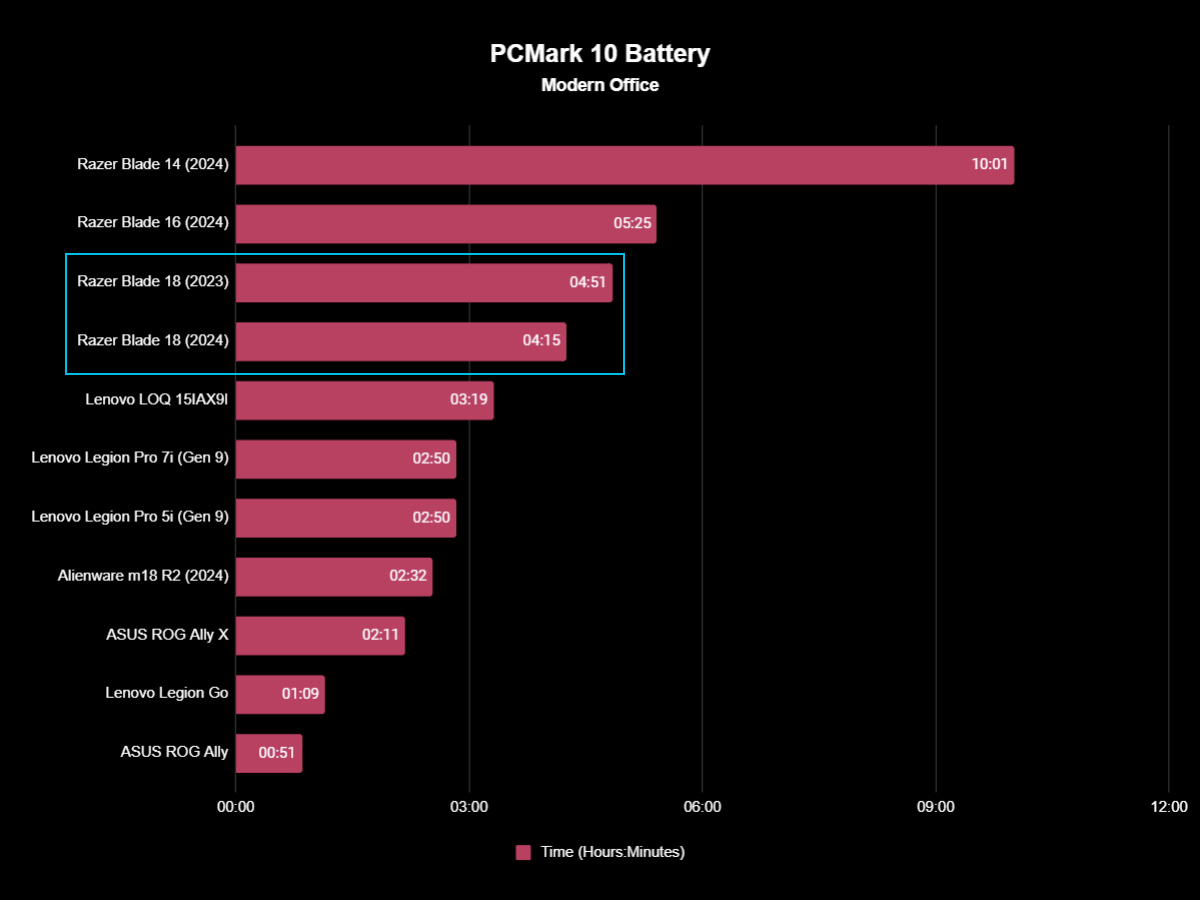
PCMark 10 battery benchmark testing everyday ‘modern office’ app usage.
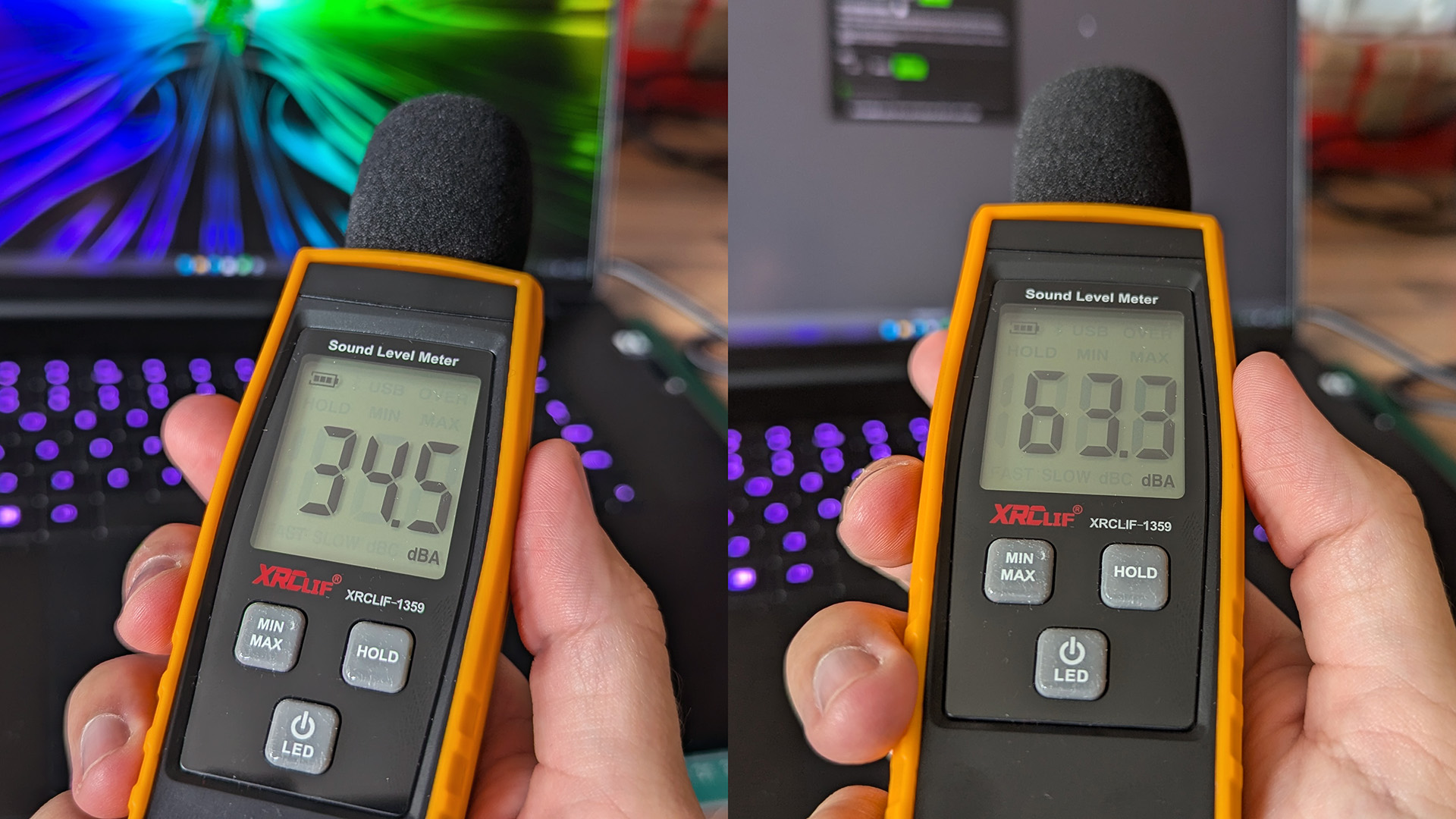
With the fans set to maximum speed, the Blade 18 (2024) can reach a maximum of 63.3 dBA,slightly quieter than an average dishwasher. Otherwise, it sticks around a whispered 34.5 dBA.
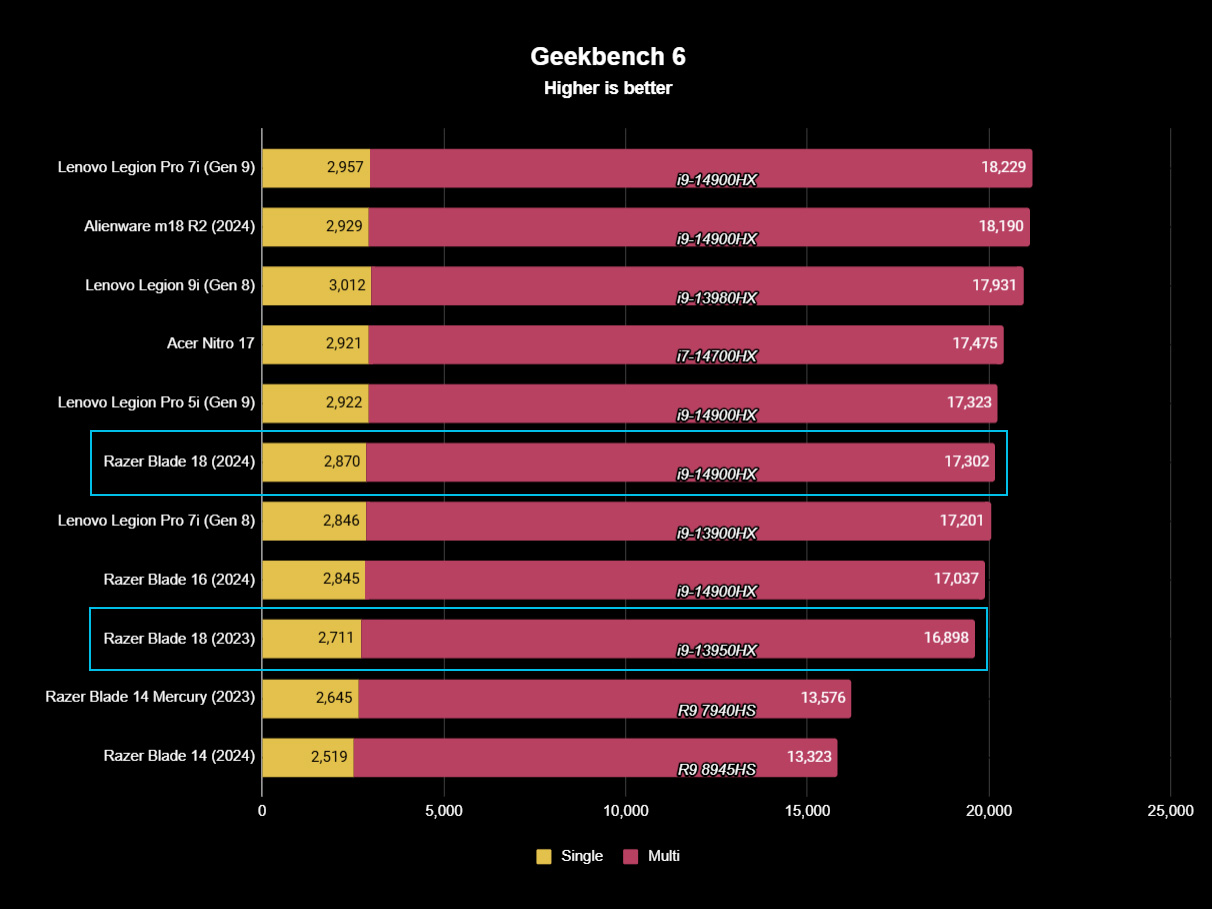
Geekbench 6 tests CPU performance against similar laptops.(Image credit: Ben Wilson | Windows Central)
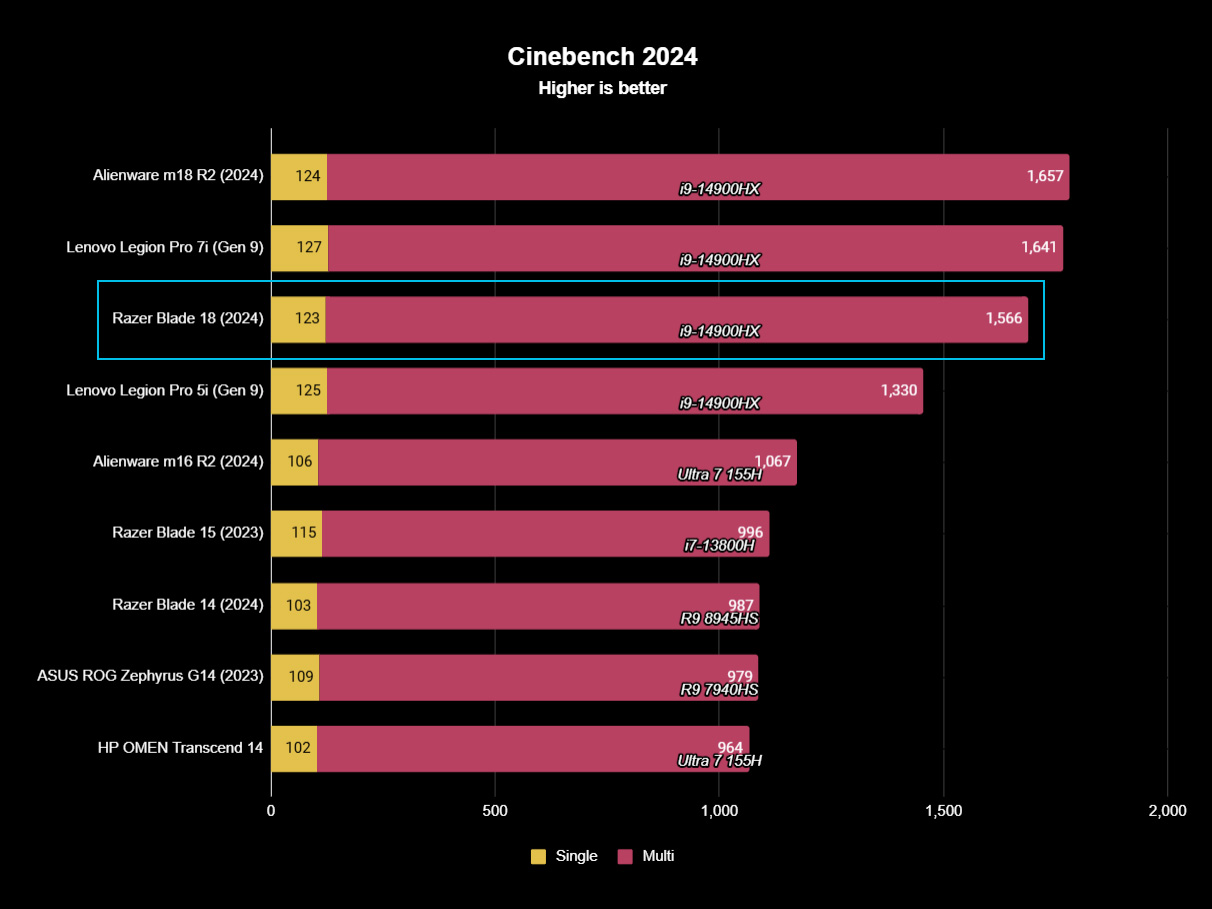
Cinebench 2024 tests sustained CPU stress to demonstrate effective cooling.(Image credit: Ben Wilson | Windows Central)
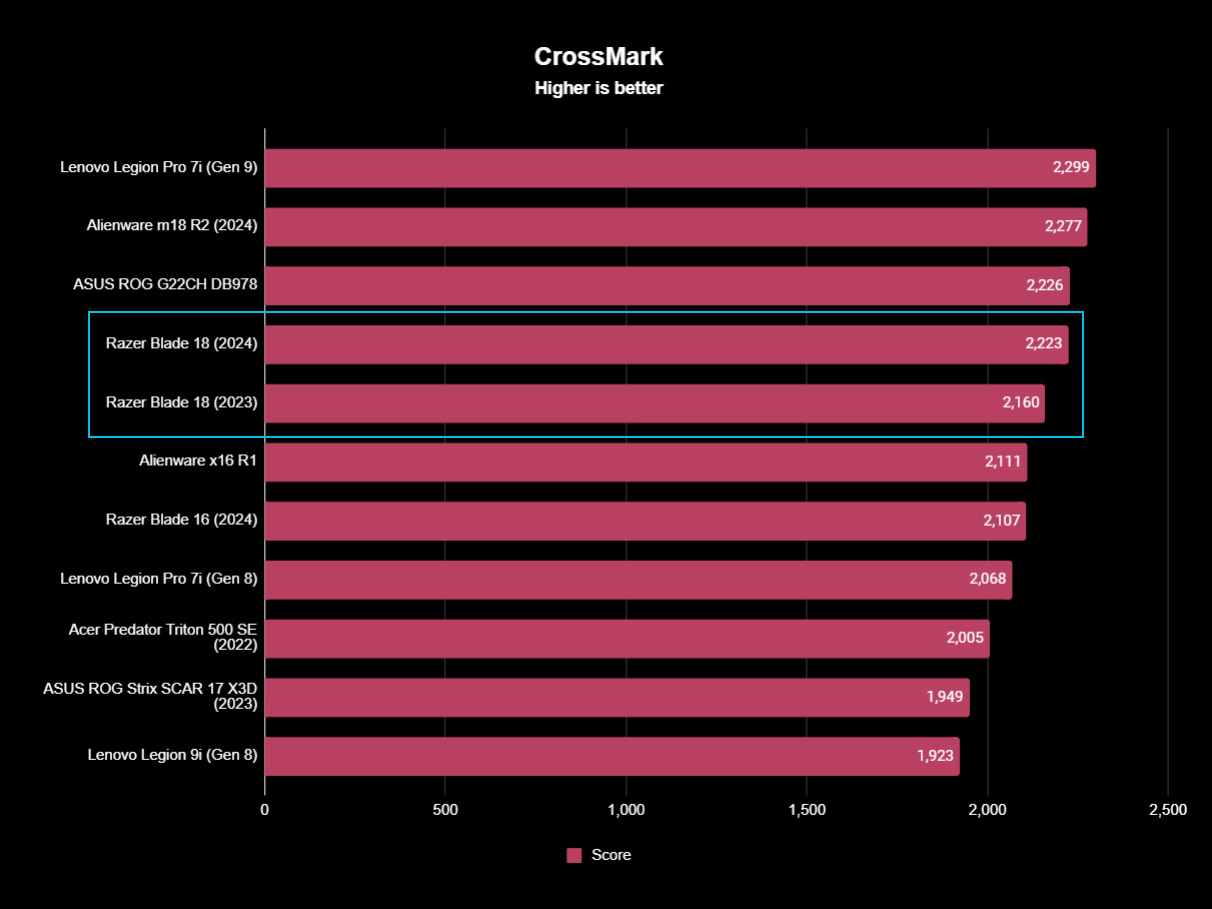
CrossMark is a broader benchmark that tests the overall laptop.(Image credit: Ben Wilson | Windows Central)
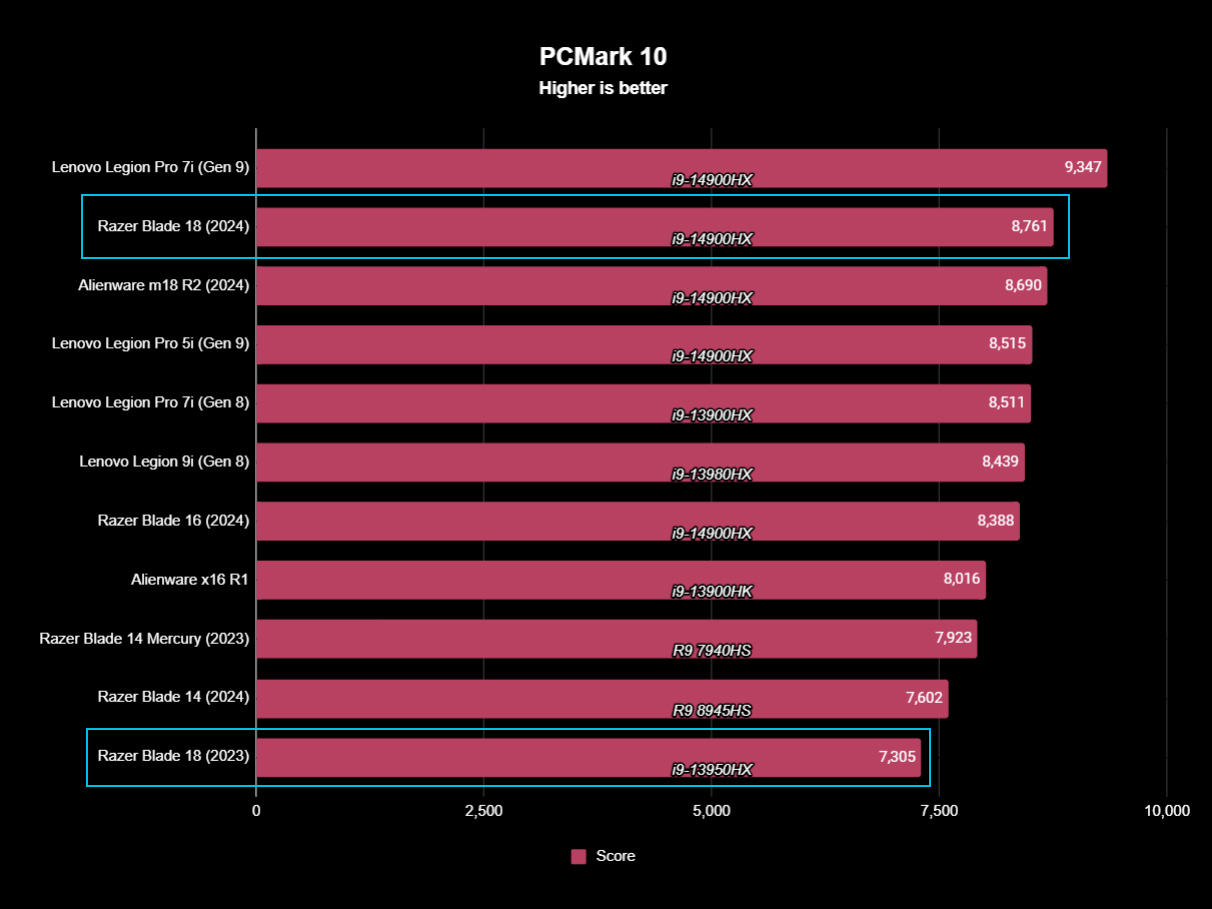
PCMark 10 emulates everyday app usage like web browsing and video calls.(Image credit: Ben Wilson | Windows Central)
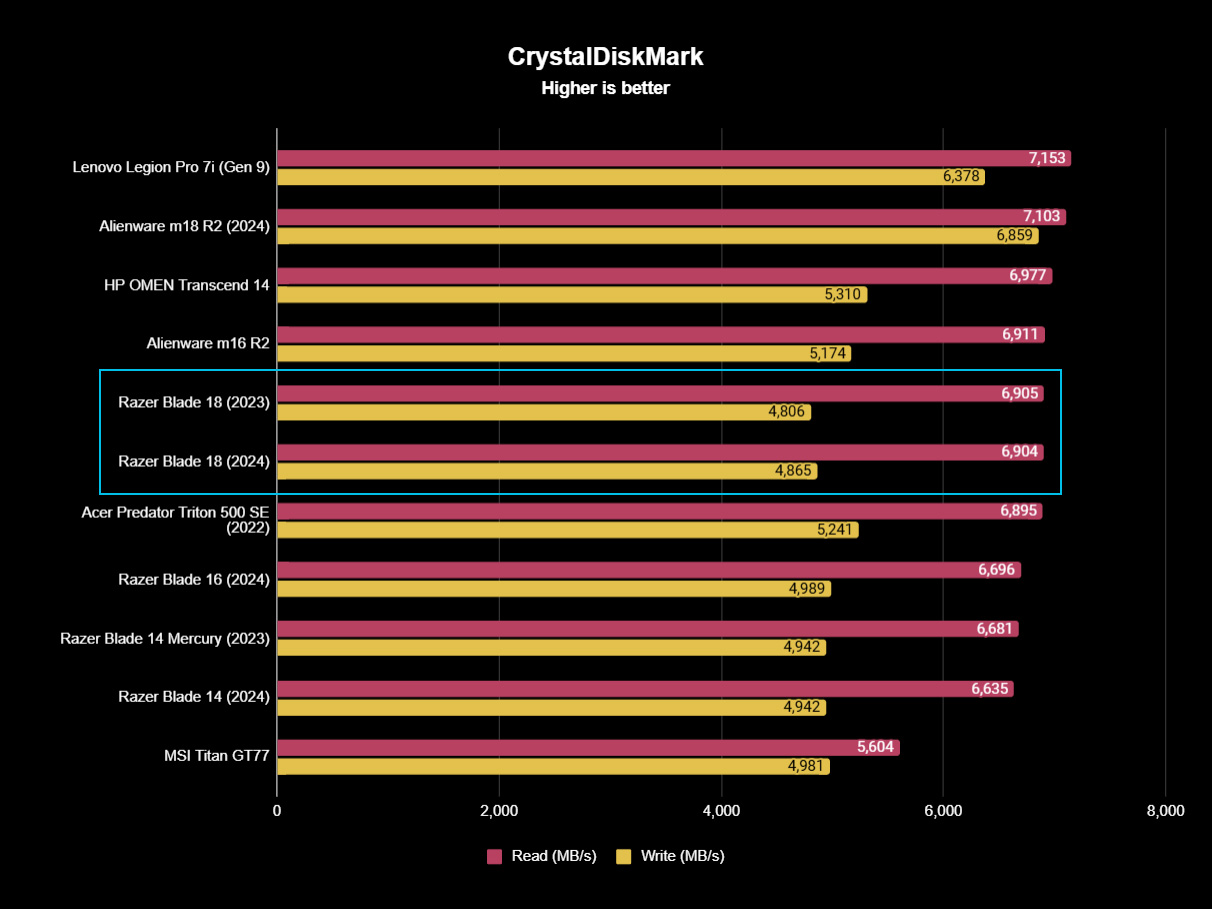
CrystalDiskMark tests the read and write speed of internal storage drives.(Image credit: Ben Wilson | Windows Central)
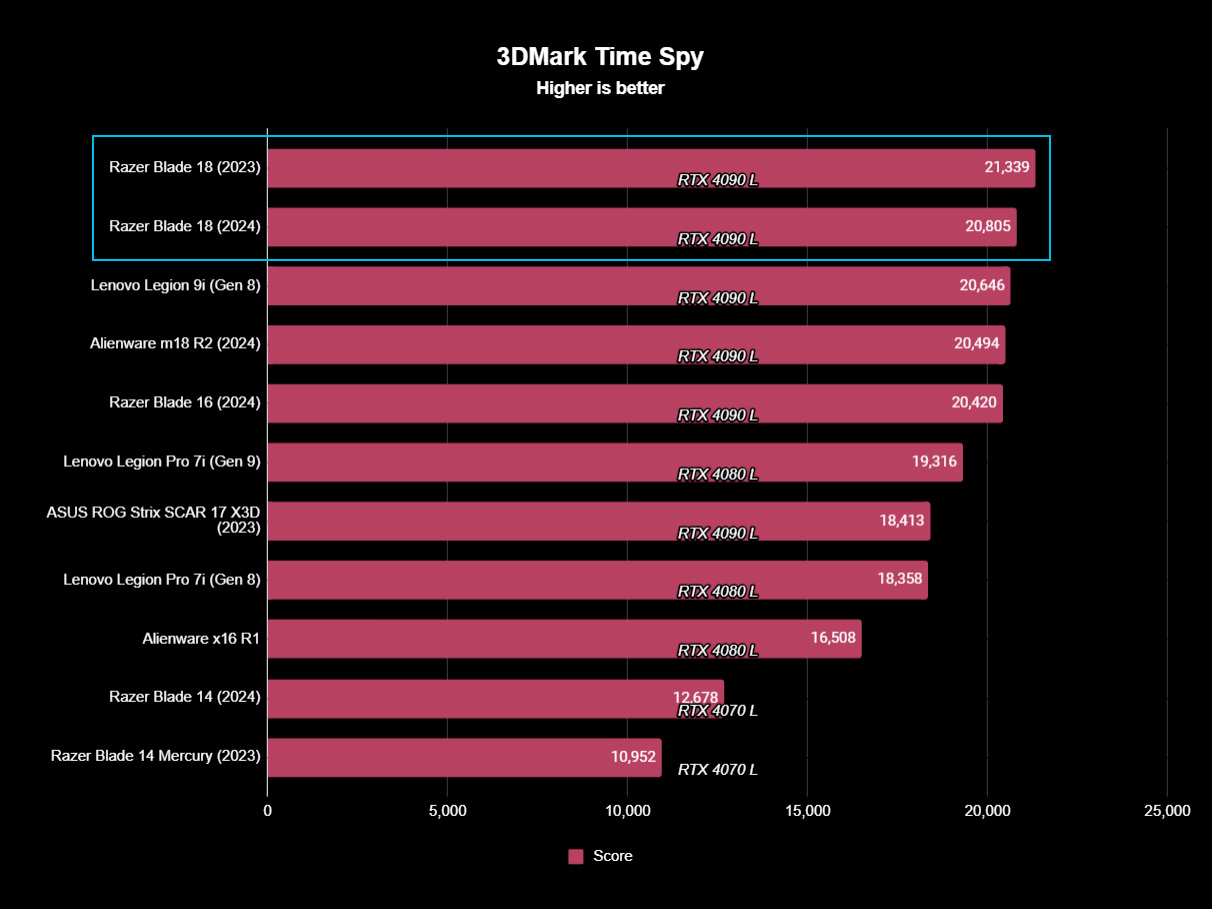
3DMark Time Spy is a graphical benchmark that tests the NVIDIA RTX 4090 GPU.(Image credit: Ben Wilson | Windows Central)
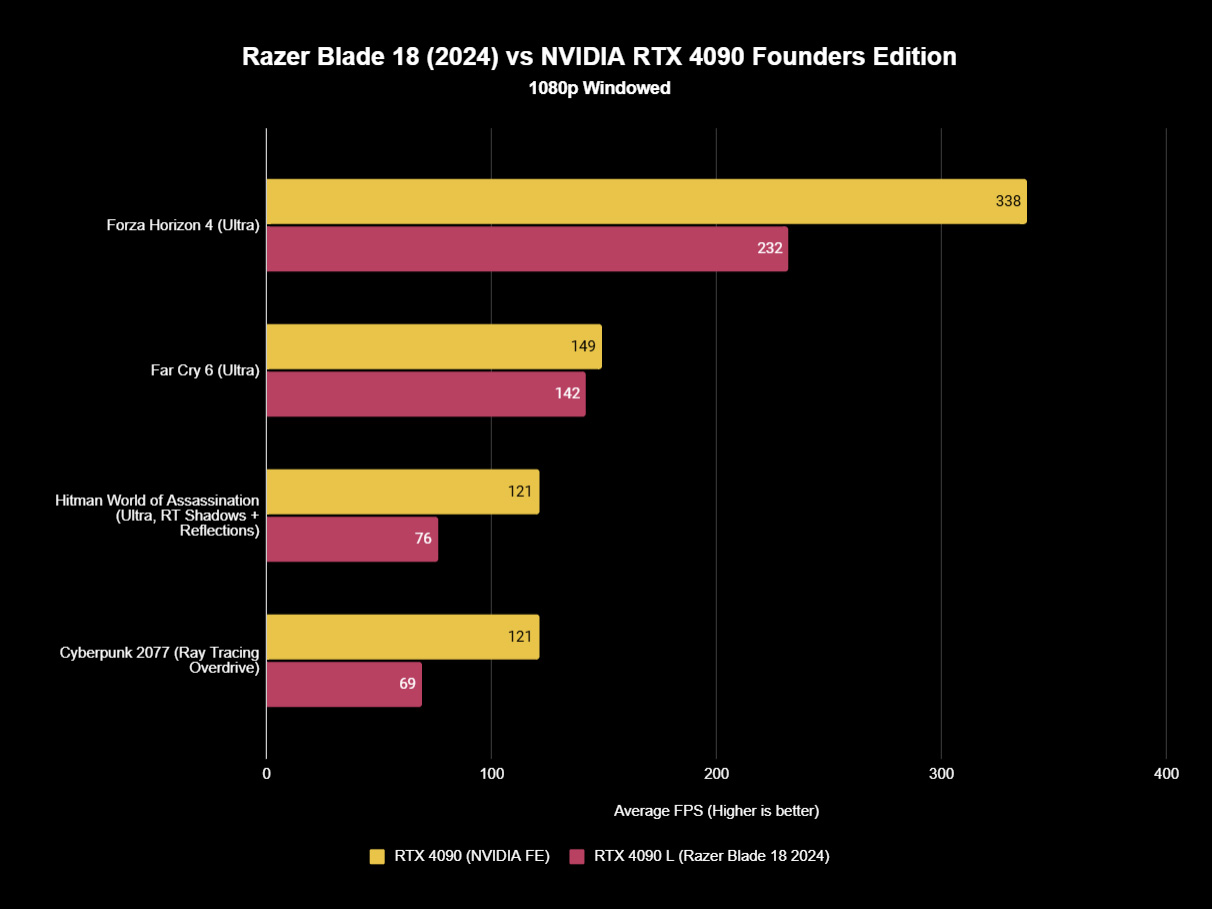
Comparing video game performance between the Blade 18’s RTX 4090 L and a full-sized desktop RTX 4090 GPU shows the sacrifices made in shrinking it to laptop size.
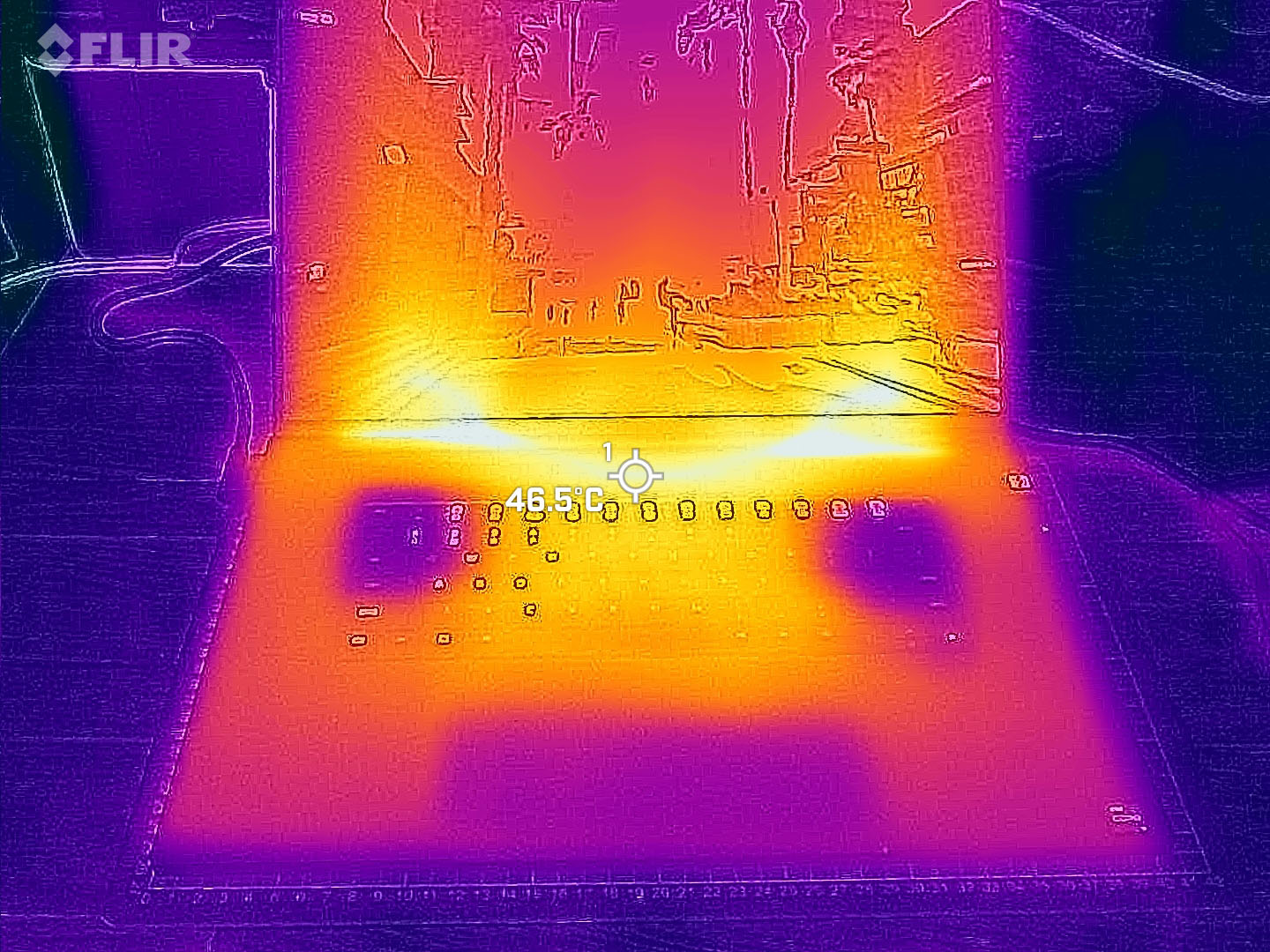
Pushing the Blade 18 (2024) to its limits with Cyberpunk 2077 benchmarks, my thermal camera exposes the effective fans inside.(Image credit: Ben Wilson | Windows Central)
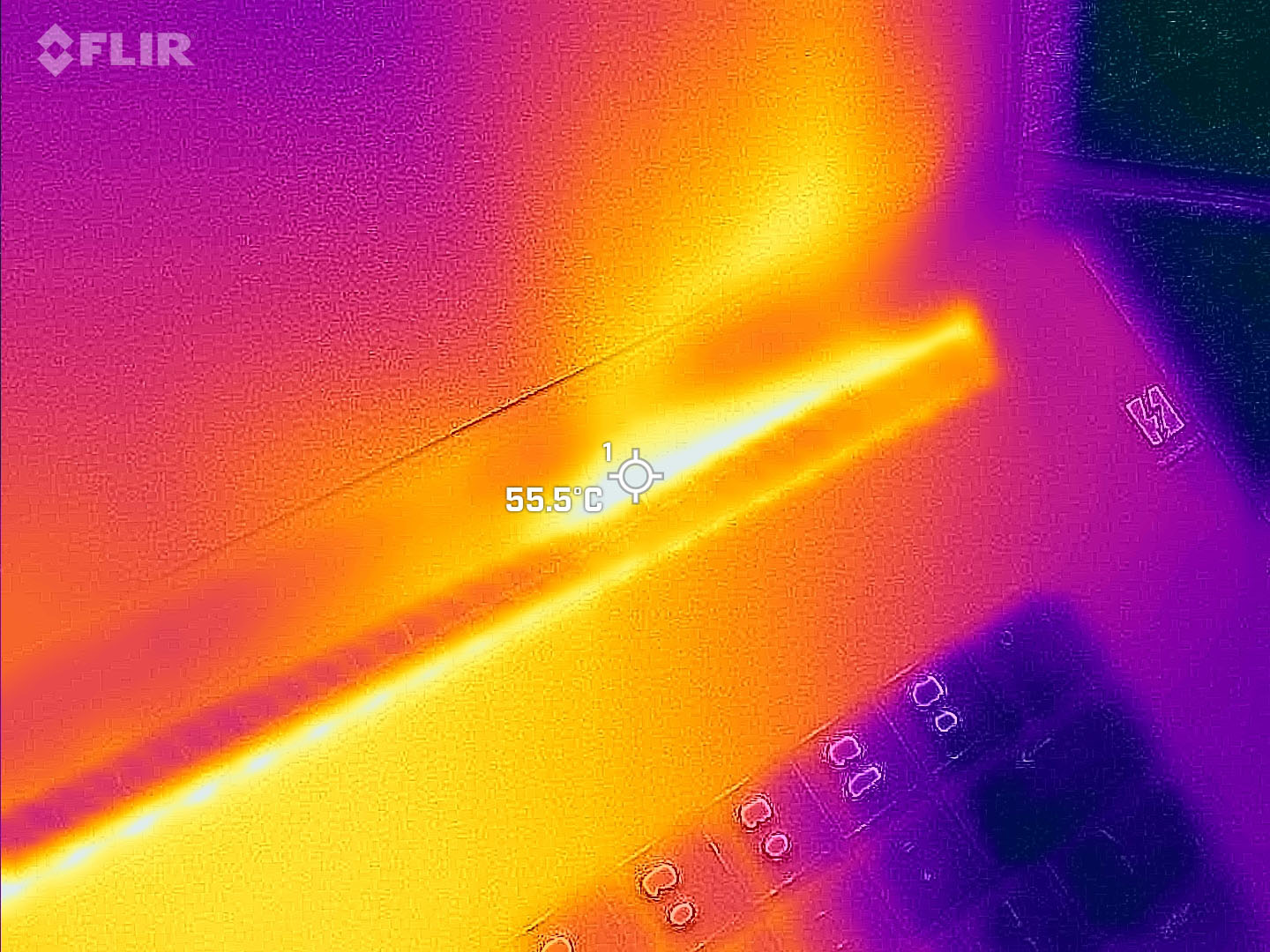
The only true hot spots remain exactly where they should be, in the venting strip along the screen hinge, and it’s never TOO hot.(Image credit: Ben Wilson | Windows Central)
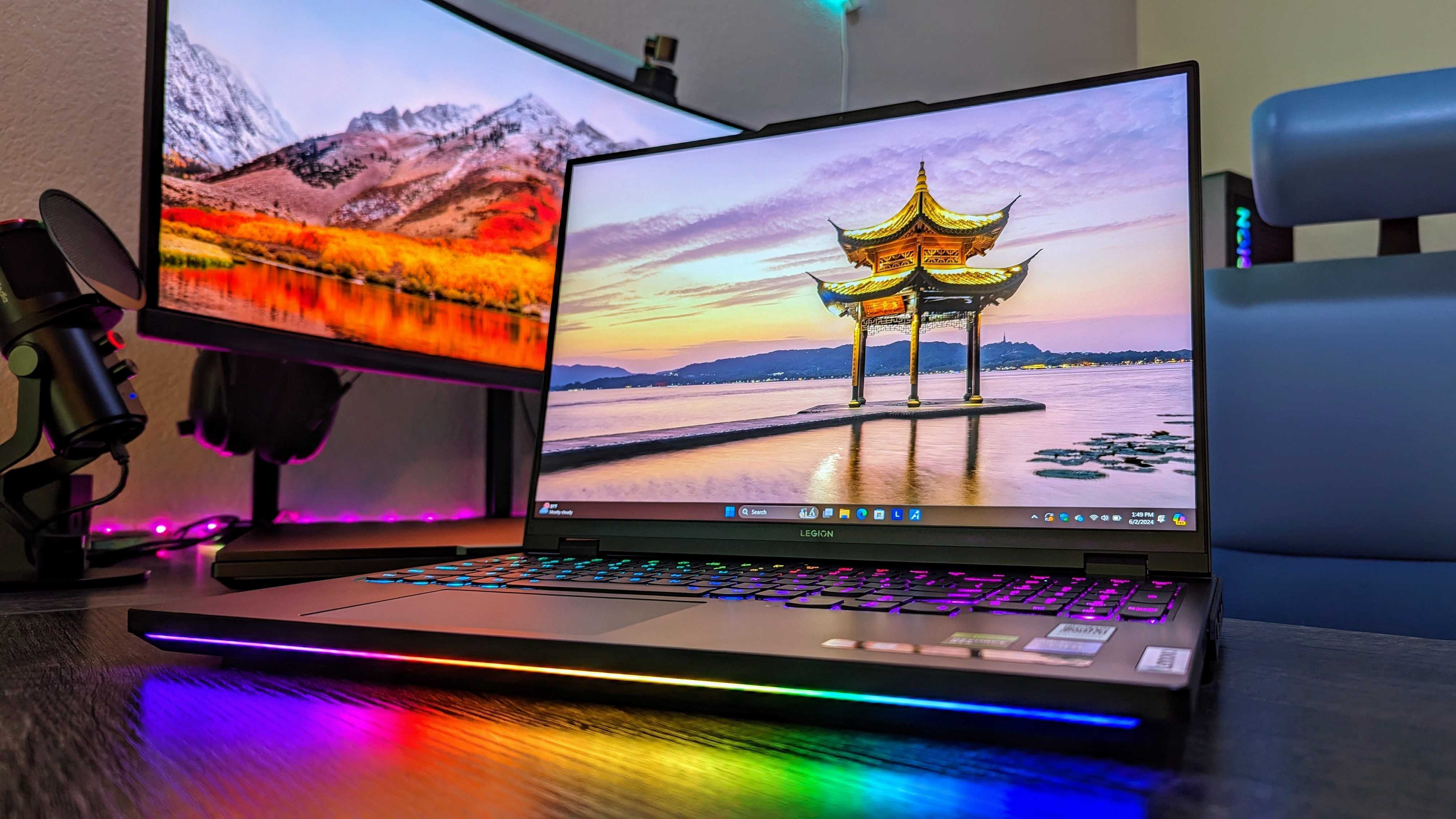
The new Lenovo Legion Pro 7i is refined to near-perfection.
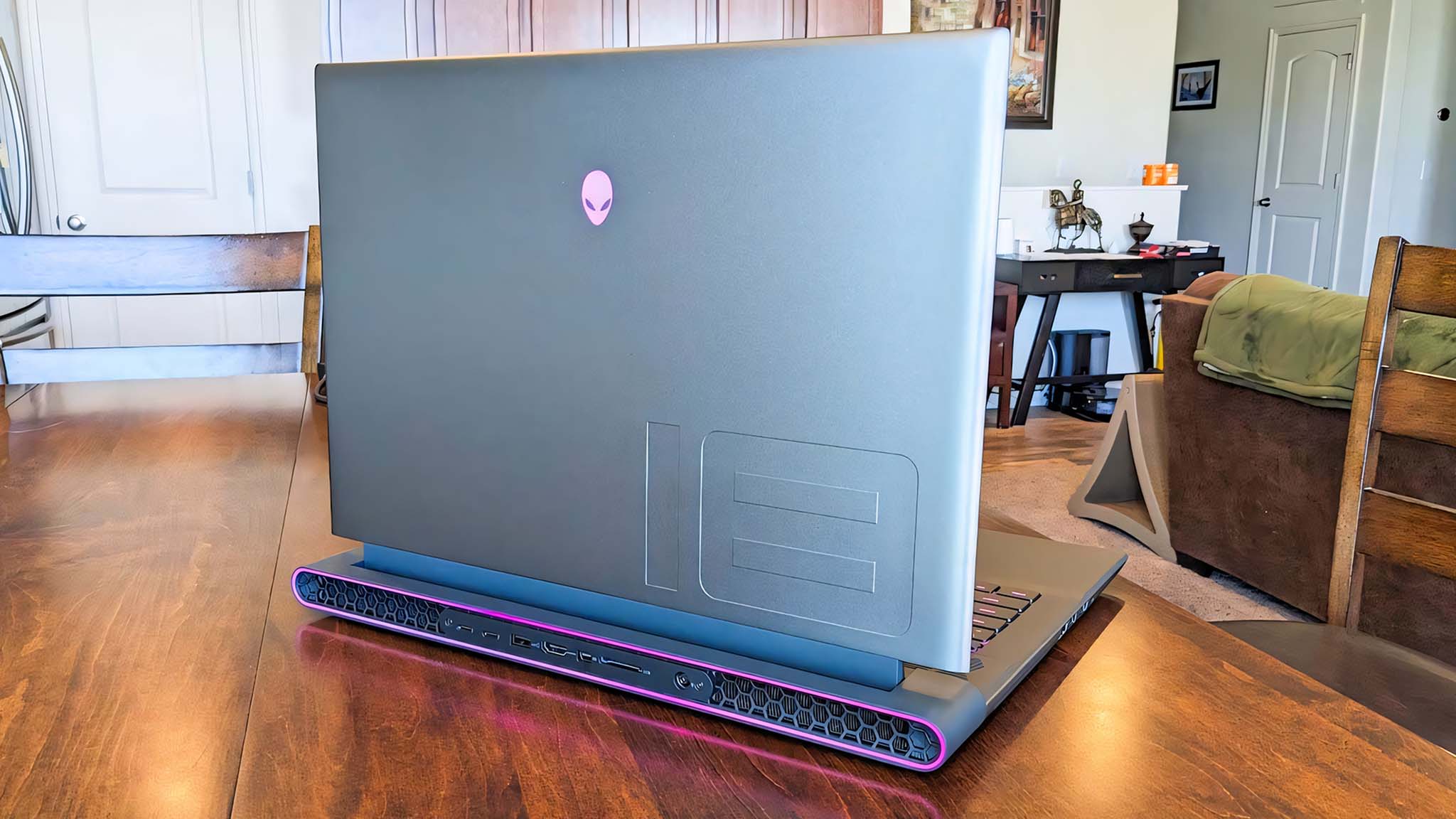
A ring of light glows around the backside of the thermal bar.
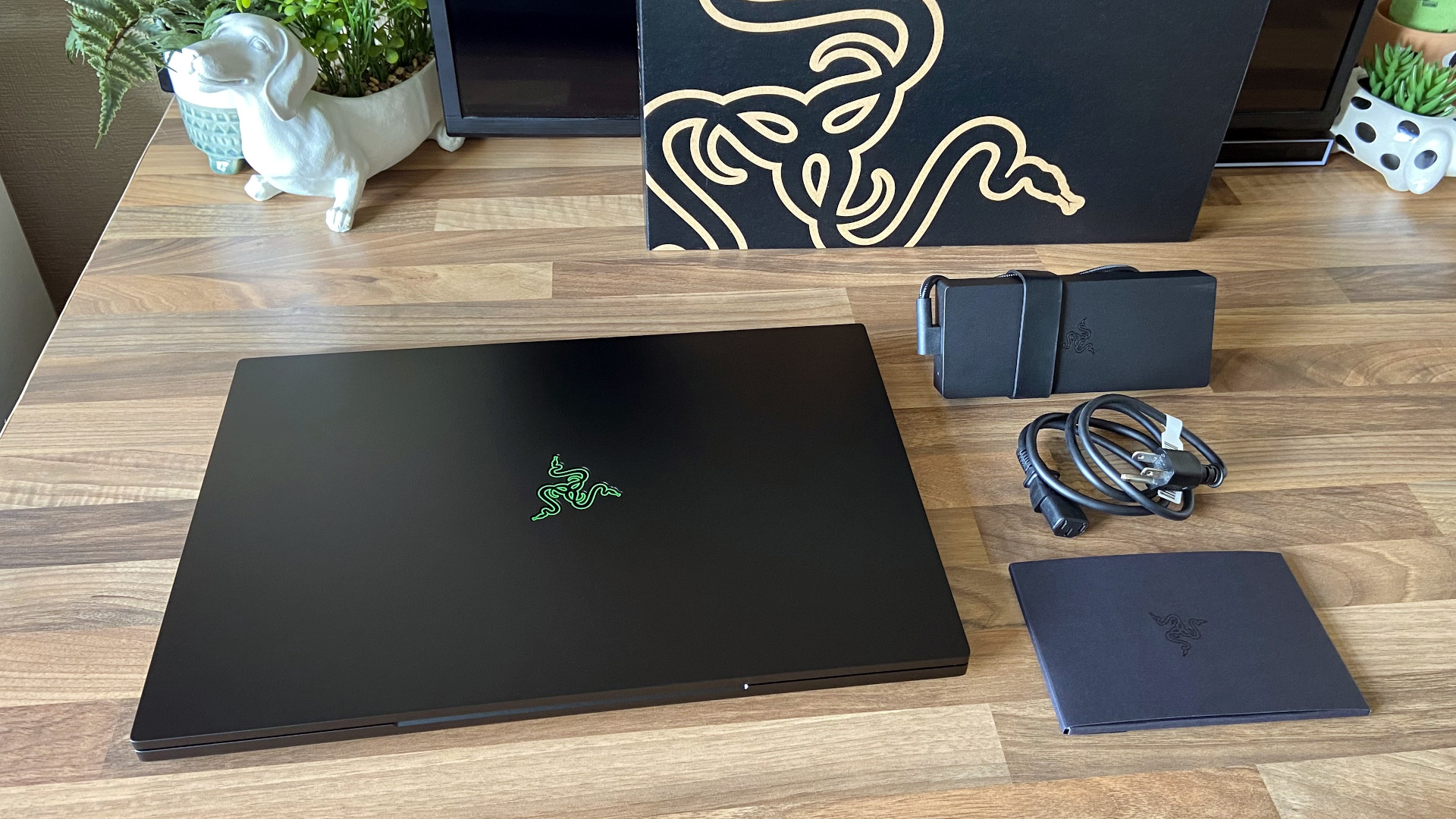
With Razer Blade 18 unboxed, it’s clear that most of the packaging was filled with thoughtful padding.
